- View all upcoming workshops at MSRI
- MSRI Programmatic Workshops
- How to apply for workshops
- Resources for workshop attendees
- MSRI Policies for Program and Workshop Participants
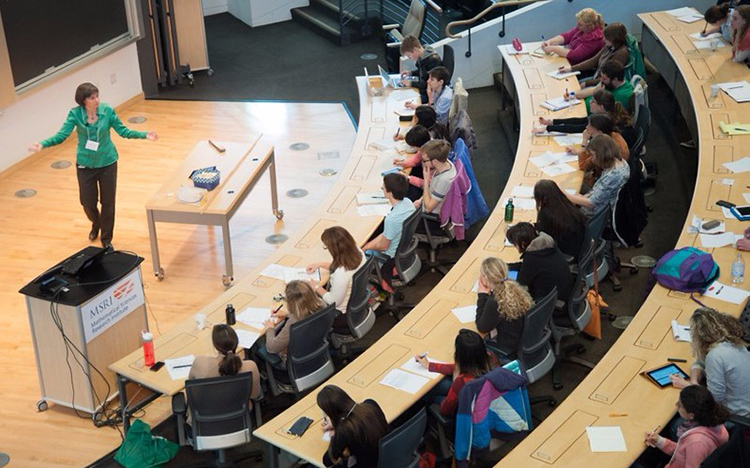
MSRI Programmatic Workshops
MSRI welcomes registrations for our upcoming workshops, listed below. Established researchers, postdoctoral fellows, and graduate students are invited to apply for funding.
Most MSRI workshops are free of charge to attend, thanks to the support of the National Science Foundation and other institutional sponsors.
Programmatic Workshops related to MSRI's Scientific Programs fall into one of the following three categories:
INTRODUCTORY WORKSHOPS
Introductory workshops set the stage and provide the context for the scientific program, with the intended audience being researchers not in the program. This would include members in the other programs, members of the local mathematical community, and participants from outside the area selected especially for the workshop, particularly from groups underrepresented in research intensive contexts: women, minorities, mathematicians not located at research centers, and graduate students. In selecting participants, priority is given to these latter groups. Introductory Workshops have been effective in broadcasting the goals, ideas and techniques of a particular program to the mathematical public at large, as well as in bringing the MSRI community together as a whole.
CONNECTIONS WORKSHOPS
Connections Workshops have a long, successful history of encouraging early-career women and gender-expansive individuals in the profession. Held at the very beginning of semester-long or year-long programs at MSRI, these workshops have three overarching goals: (1) to give accessible introductions to the main themes of the program and exciting new directions in related research; (2) to provide participants the opportunity to become acquainted with the work of women in the field; and (3) to connect early-career researchers, especially women, gender-expansive individuals, and minorities, to potential senior mentors. A typical workshop consists of introductory lectures, presentations by post-doctoral researchers and graduate students, and a panel discussion addressing the challenges faced by all young researchers, but especially by women, in establishing a career in mathematics.
Throughout the workshops, special effort is made to foster mentoring relationships between established and early-career researchers at the lunches, dinners, and coffee breaks. Participants of the Connections Workshop are encouraged to stay for the following week for the Introductory Workshop to the semester’s program. The workshop organizers are also encouraged to propose week-end activities for small groups of women with similar research interests to discuss problems and perhaps to begin work on a joint research project (e.g. forming small research or study groups that would work on predetermined problems, read a paper, or leanr new techniques). As is the case for all MSRI workshops, registration to attend Connections workshop lectures is open to all interested persons.
TOPICAL WORKSHOPS
Directed toward the mathematical community at large, topical workshops are designed to interest and attract young researchers and other mathematicians active in the field.
- MSRI provides a yearly Hot Topics Workshop, to showcase what is new, innovative and interesting to the mathematical sciences community at the present time.
- The Critical Issues in Mathematics Education (CIME) workshop series offers an annual spring workshop designed to engage mathematicians, mathematics education researchers, and K-12 teachers to learn about research and development efforts that can enhance their own work and about the contributions they can make to solving the challenges of mathematics education.
How to Apply
Use the calendar below to navigate to the specific workshop you are interested in attending. On the right side menu, you will see a Registration link. Follow the instructions to register for each workshop.
- ORCID ID: In order to register for most MSRI workshops, MSRI needs to collect your ORCID ID as required by the National Science Foundation, the primary funder of these workshops. ORCID is an independent non-profit organization that provides a persistent identifier – an ORCID ID – that distinguishes you from other researchers and a mechanism for linking your research outputs and activities to your ID. ORCID is integrated into many systems used by publishers, funders, institutions, and other research-related services. Learn more and create an ORCID ID account at orcid.org. Questions? Contact coord@msri.org.
Resources for Workshop Attendees
Nursing Room: MSRI is pleased to be able to offer a private room for nursing parents.
Childcare Grants: To allow visitors to fully participate in its scientific activities, MSRI is pleased to be able to offer childcare grants to researchers with children under the age of 17. One of the objectives of MSRI’s family support program is to contribute toward MSRI’s goal of enabling the participation of women and members of other historically underrepresented groups in its programs, workshops, and summer graduate schools
These flexible grants may be used for reimbursement of childcare expenses incurred in Berkeley, or at home, including airfare for children and support for companion caregivers or hired childcare providers in Berkeley or to cover the costs of such help at home. Please note that, because these funds are taxable, they are available only to US Citizens and Permanent Residents, and foreign visitors with a visa status that allows for compensation, such as a J1. We are deeply grateful to our Family Support Donors for their generosity.
If you are interested in receiving a childcare grant, please fill out this form: https://www.surveymonkey.com/r/Z368L3N.
MSRI is unable to offer any on-site childcare services in Berkeley, nor are we able to make recommendations for child care providers. For convenience, participants looking for childcare resources may find the following links useful:
- Bananas offers free referrals to licensed childcare providers and provides information and resources to families with young children.
- Berkeley Parents Network is an iconic website where parents can look for and recommend childcare.
MSRI Policies for Program and Workshop Participants
Funding Opportunities: It is the policy of MSRI to actively support a diverse audience at these workshops. Thus, a strong effort is made to remove barriers that hinder equal opportunity, particularly for those groups that have been historically underrepresented in the mathematical sciences. Women, gender-expansive individuals, minorities, mathematicians not located at research centers, recent PhDs, and graduate students are particularly encouraged to apply for funding to attend.
MSRI Collegiality Statement: MSRI is committed to fostering an atmosphere of respect, collegiality, and sensitivity. Please view the complete statement here.
MSRI Anti Discrimination and Harassment Policy: MSRI is committed to providing a welcoming environment free from discrimination on the basis of race, color, creed, religion, sex, national origin, age, physical or mental disability, family care status, veteran status, marital status, sexual orientation, identification or expression. Likewise, the Institute will not tolerate harassment based on these characteristics, or any form of sexual harassment. Please view the complete statement here.
Current all workshops
Upcoming all workshops
-
Recent Progress in Topological and Geometric Structures in Low Dimensions
Organizers: Kenneth Bromberg (University of Utah), Sergio Fenley (Florida State University), Autumn Kent (University of Wisconsin-Madison), LEAD Kathryn Mann (Cornell University), Kasra Rafi (University of Toronto)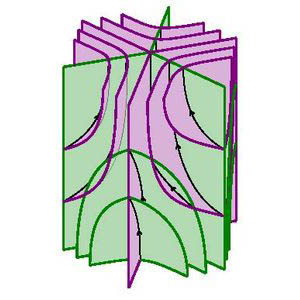 Foliations around a pseudo-Anosov singularity (Image credit: Chi Cheuk Tsang)
Foliations around a pseudo-Anosov singularity (Image credit: Chi Cheuk Tsang)This workshop will bring together ideas from diverse areas of mathematics that meet in the setting of geometry and topology in low dimensions. This includes the study of flows, foliations, and fibrations of three-manifolds and the related study of geometry (e.g. hyperbolic or conformal structures) of the manifolds and of the leaves or fibers, and their mapping class groups. This is a rich and interconnected area and many adjacent topics will also be featured.
Updated on Jan 07, 2026 11:05 AM PST -
Hot Topics: Geometric Langlands Conjecture
Organizers: Justin Campbell (Brandeis University), Charlotte Chan (University of Michigan), Lin Chen (Tsinghua University), Kevin Lin (University of Chicago), Sergey Lysenko (Université de Lorraine; Université de Lorraine), William Sawin (Princeton University) The Langlands program, pictured as a sea monster (Photo credit: V. Lafforgue)
The Langlands program, pictured as a sea monster (Photo credit: V. Lafforgue)This workshop will focus on the recent proof of the global unramified geometric Langlands conjecture as well as potential future developments in this field.
Updated on Feb 06, 2026 05:23 PM PST -
Homogeneous Dynamics and Anosov Representations
Organizers: Simion Filip (University of Chicago), Ursula Hamenstädt (Rheinische Friedrich-Wilhelms-Universität Bonn), LEAD Fanny Kassel (Institut des Hautes Études Scientifiques (IHES)), Hee Oh (Yale University), Jean-François Quint (CNRS - Université de Montpellier) Limit set of an Anosov representation
Limit set of an Anosov representationThis workshop will focus on recent advances on geometric and dynamical approaches to the study of discrete subgroups of higher rank Lie groups and their deformation spaces. The goal will be to present results and exchange ideas from different areas of mathematics, and we hope to create bonds between several different mathematical communities.
Updated on Jan 07, 2026 11:06 AM PST -
Critical Issues in Mathematics Education 2026: Mathematics Literacy for 21st-Century Citizenship - Part II
Organizers: Robert Berry (Indiana University), Josue Cordones (Bronx Collaborative High School), Megan Franke (University of California, Los Angeles), Maisie Gholson (University of Michigan), Courtney Ginsberg (Math for America), Mark Hoover (University of Michigan), Yvonne Lai (University of Nebraska), LEAD Maisha Moses (The Young People's Project), LEAD Benjamin Moynihan (The Algebra Project, Inc.), Aris Winger (Georgia Gwinnett College)Building on the vision Bob Moses set out in the 1993 Algebra Initiative Colloquium, the 2025 Critical Issues in Mathematics Education (CIME) Workshop celebrated the legacy of Moses’ call for a mathematics literacy that supports citizenship in the 21st century. A mathematics towards citizenship has proved elusive as a goal for mathematicians, mathematics educators, researchers, students, teachers, and leaders—even as efforts among different individuals, organizations, and communities labor for greater access to high-quality mathematics learning experiences. The 2026 CIME Workshop, Mathematics Literacy for 21st Century Citizenship - Part II, endeavors to design opportunities for learning, collaborating, and struggling towards a mathematics for lived citizenship, as a theme and organizing principle for communities across the Nation.
For Moses, the notion of lived citizenship is not simply a matter of gaining legal status but of demanding that the legal status be meaningful. Thus mathematics literacy for lived or participatory citizenship might be thought of to include contributing to your community, not just being part of a community, and beyond belonging, to actively participate in making your community better, in making life better for others.
The conception of mathematics for lived citizenship is an important foundation for the goals for the 2026 CIME Workshop, in order to envision the development of coordinated actions in the short and long term within the mathematics and mathematics education communities. To ground and catalyze these efforts, we invite participants to consider a mathematics for lived citizenship through three foundational ideas:
- Claiming mathematics -- establishing agency in and ownership of math.
- Building Agency -- claiming and leveraging mathematics knowledge to overcome present day, generational, community, and national challenges.
- Collaboration and collective effort -- using mathematics literacy to make systemic change.
Three questions will guide our work:
- How does the unfolding history of mathematics impact lived citizenship?
- How do we understand the relationship between mathematical flourishing and the evolution of vibrant democracy in the United States?
- In light of the above two questions, how do we reimagine our roles, responsibilities, and actions in the short and long term?
Updated on Jan 28, 2026 12:40 PM PST -
Séminaire de Mathématiques Supérieures 2026: Universal Statistics in Number Theory (Montréal, Canada)
Organizers: Louis-Pierre Arguin (University of Oxford), Andrew Granville (Université de Montréal), Dimitris Koukoulopoulos (Université de Montréal), Matilde Lalin (Université de Montréal), Carlo Pagano (Concordia University), Elliott Paquette (McGill University), Frank Thorne (University of South Carolina)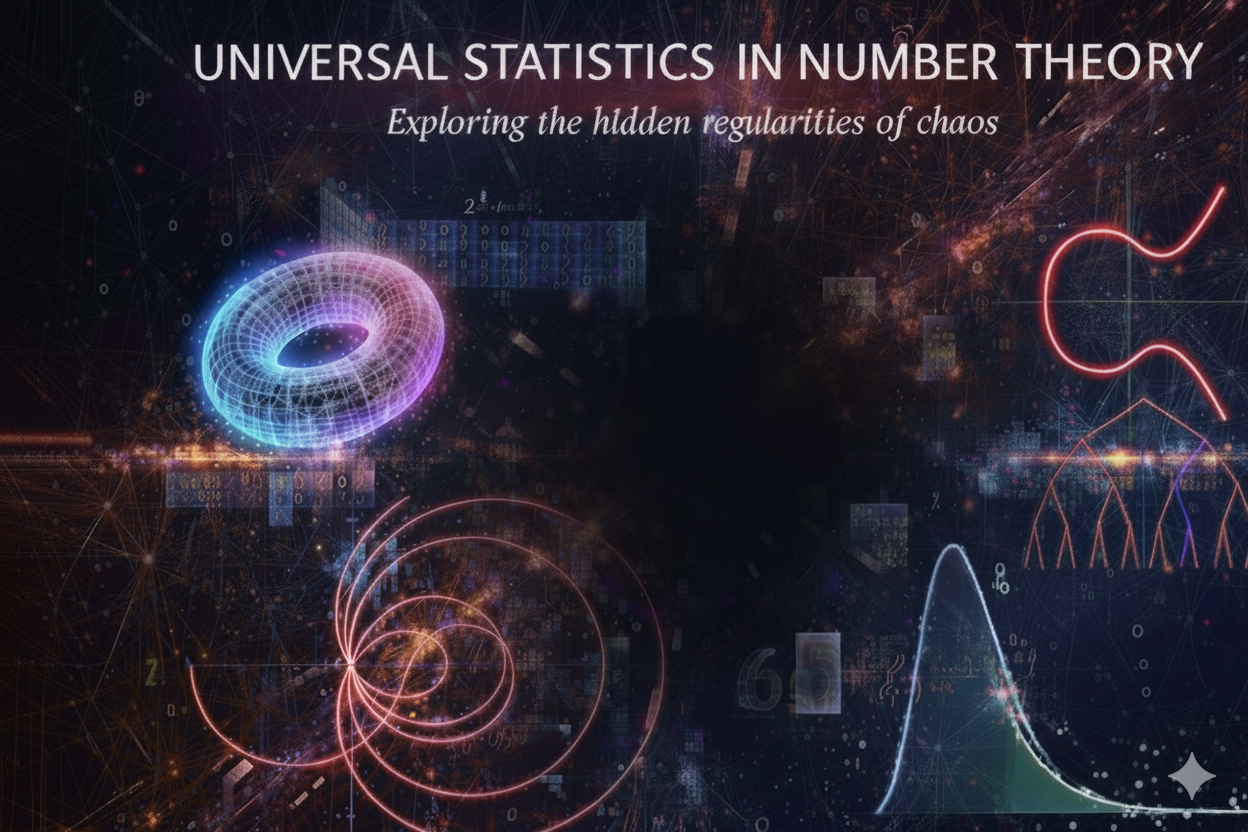
One of the hottest topics in analytic number theory involves the use of statistics and probability in understanding different aspects of algebraic and analytic number theory, through various new lenses. This is reflected in some of the most exciting number theory research of the last few years (for example, of Bhargava, of Ellenberg and Venkatesh, of Alexander Smith, of Sawin and Wood, of Adam Harper, of Koukoulopoulos and Maynard, of Helfgott and Radziwill, of Pilatte,....). As a consequence the CRM will host a thematic semester Mar 2-July 3, 2026 on these topics involving some of the world leaders in the subject. Since this new area can roughly be split in two into Algebraic and Analytic, we will focus for two months on each, with the SMS school placed in the middle. The 2026 SMS will introduce junior mathematicians to important trends in number theory.
Updated on Oct 17, 2025 04:27 PM PDT -
Geometric Measure Theory (SLMath)
Organizers: Camillo De Lellis (Institute for Advanced Study; GSSI), Guido De Philippis (Università di Padova)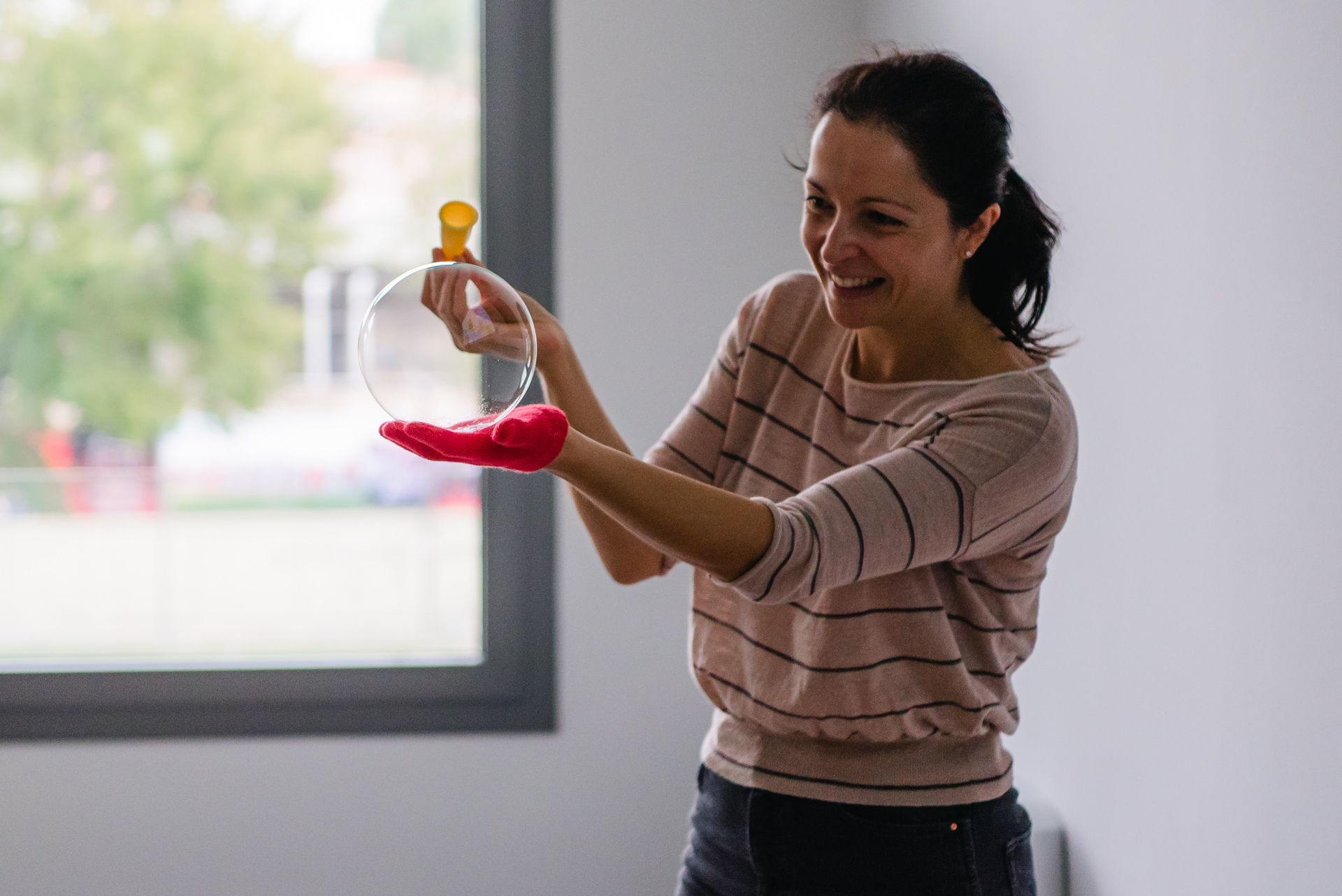
The school will consist of three interrelated courses, aimed to introduce the main concepts in Geometric Measure Theory.
(1) Sets and measure in the Euclidean space, Guido De Philippis (Courant Institute of Mathematical Sciences)
(2) Theory of currents, Annalisa Massaccesi (University of Padua)
(3) Allard regularity theory, Camillo De Lellis (Institute of Advanced Study)Updated on Sep 25, 2025 02:36 PM PDT -
Percolation and Lattice Models of Statistical Physics (Columbia University)
Organizers: Roland Bauerschmidt (New York University, Courant Institute), Tom Hutchcroft (California Institute of Technology) <p>The five largest clusters in critical site percolation on a large three-dimensional box</p>
<p>The five largest clusters in critical site percolation on a large three-dimensional box</p>Percolation and spin models such as the Ising model have a history that goes back over 100 years. The subject has taken a central role in probability theory over the last few decades, in particular through interactions with various other areas of mathematics. These include graph theory, theoretical
computer science, statistical physics, quantum field theory, complex analysis, partial differential equations, and geometric group theory. Through examples, the summer school aims to illustrate some of the successful techniques and ideas in the subject area.Updated on Feb 11, 2026 11:09 AM PST -
MSRI-UP 2026: Numerical Methods for Differential Equations
Organizers: LEAD Alexander Diaz-Lopez (Villanova University), Maria Mercedes Franco (Queensborough Community College (CUNY)), Rebecca Garcia (Colorado College), Johnny Guzman (Brown University), Candice Price (Smith College), Robin Wilson (Loyola Marymount University)The MSRI-UP summer program is designed to serve a diverse group of undergraduate students who would like to conduct research in the mathematical sciences.
In 2026, MSRI-UP will focus on Numerical Methods for Differential Equations The research program will be led by Dr. Johnny Guzman of Brown University.
Updated on Dec 17, 2025 04:12 PM PST -
Random Growth Models, Phase Separation and Hamilton-Jacobi PDE (UC Berkeley)
Organizers: Alan Hammond (University of California, Berkeley), Fraydoun Rezakhanlou (University of California, Berkeley)Models of random growth and of the separation of phases occurring when one substance is suspended in another often evince universal features, in which scaling exponents are shared among a broad class of such models. A foothold for understanding such features is often offered by studying a few special models that are exactly solvable, which means that exact formulas of algebraic or integrable origin are available. Showing that a broader range of models also have the features is a task that may rely on a range of robust probabilistic or geometric tools. The summer school will offer an introduction to random growth and phase separation, with an emphasis on tools that offer the prospect of proving universality for a wider class of models.
Updated on Aug 26, 2025 02:14 PM PDT -
ICTP-INdAM-SLMath Summer Graduate School for Machine Learning
Organizers: Claudio Arezzo (Abdus Salam International Centre for Theoretical Physics), Jean Barbier (Abdus Salam International Centre for Theoretical Physics), Filippo Bracci (Università di Roma Tor Vergata), LEAD Domenico Marinucci (Università di Roma Tor Vergata), Cristina Trombetti (CSEF and Università degli Studi di Napoli Federico II)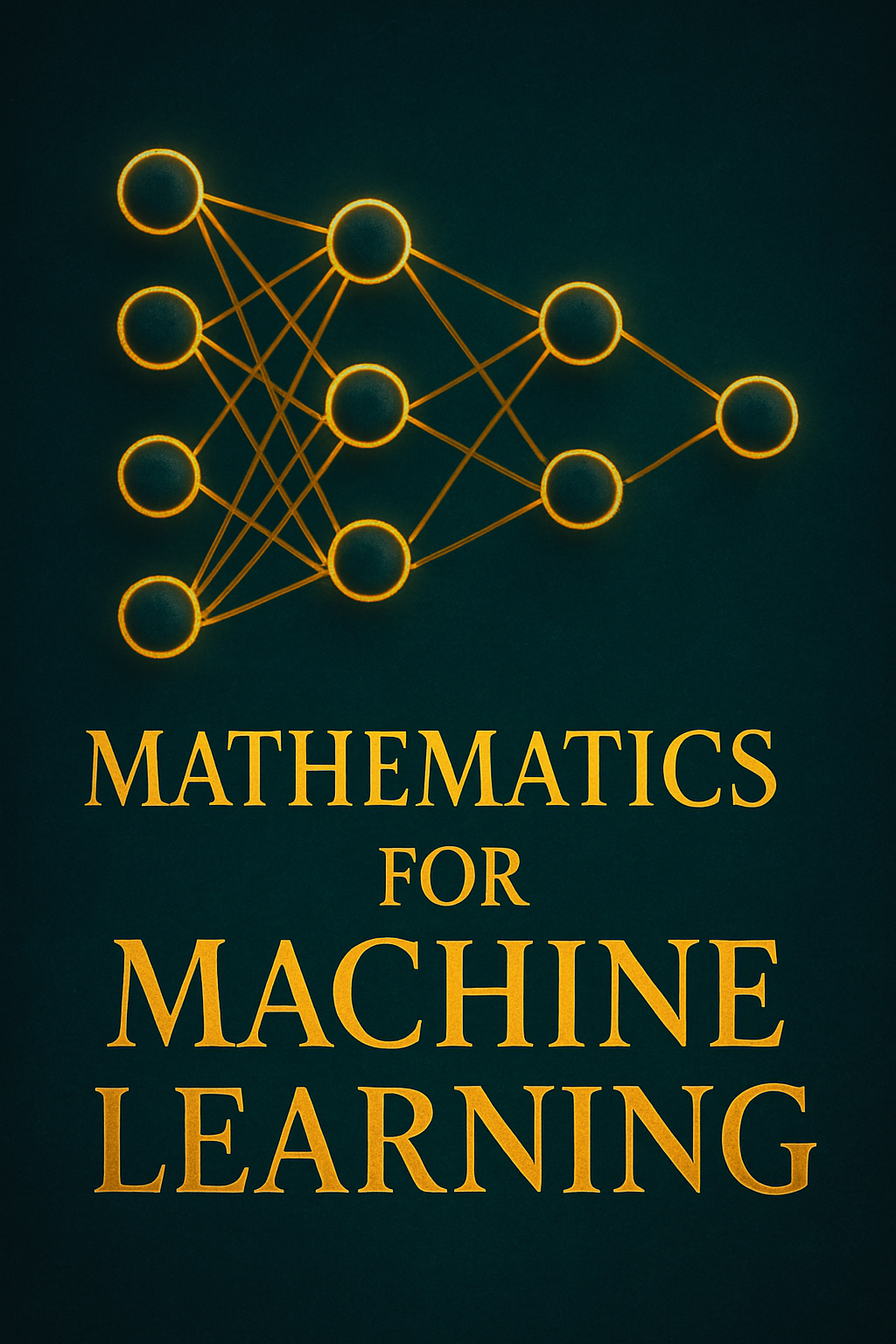
The aim of this summer school is to provide an introduction to theoretical ideas that have been developed with the objective of understanding machine learning methods and their domain of applicability. The focus will be on proof technique and general mathematical tools. The lecturers are two worldwide experts in the area and the material is regularly taught in Mathematics and Statistics Departments of the top world Universities.
Updated on Feb 23, 2026 11:02 AM PST -
John Tukey Summer Graduate School: Mathematics of Generative Models (SLMath)
Organizers: Jianfeng Lu (Duke University), Eric Vanden-Eijnden (New York University, Courant Institute) <p>Artificial image generation by flow-based generative models starting from noise</p>
<p>Artificial image generation by flow-based generative models starting from noise</p>The overarching goal of this summer school is to expose students to the latest developments in the mathematics of generative models. Our ultimate goal is to teach them how to conduct research in this exciting area in machine learning and use their knowledge to make contributions to applied mathematics using these new tools.
Updated on Feb 11, 2026 11:15 AM PST -
SLMath-Oxford-OIST School: Analysis of Partial Differential Equations (Okinawa, Japan)
Organizers: Ugur Abdulla (Okinawa Institute of Science and Technology), Gui-Qiang Chen (University of Oxford)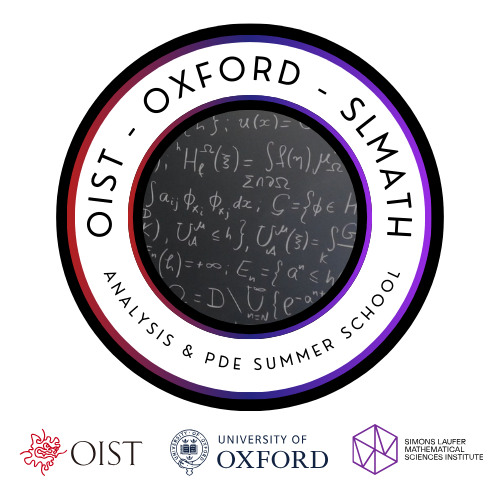
This two week summer school, jointly organized by SLMath with OIST, will offer the following two mini-courses:
- Measure-theoretical analysis, divergence-measure fields, and nonlinear PDEs of divergence form
This course will present some recent developments in the theory of divergence-measure fields via measure-theoretic analysis and its applications to the analysis of nonlinear PDEs of conservative form – nonlinear conservation laws. - Perron’s method and Wiener-type criteria in the potential theory of elliptic and parabolic PDEs
This course will present some recent developments precisely characterizing the regularity of the point at ∞ for second order elliptic and parabolic PDEs and broadly extending the role of the Wiener test in classical analysis.
Updated on Dec 03, 2025 10:44 AM PST - Measure-theoretical analysis, divergence-measure fields, and nonlinear PDEs of divergence form
-
Singularities in Commutative Algebra Through Cohomological Methods (SLMath)
Organizers: Benjamin Briggs (Imperial College, London), Eloísa Grifo (University of Nebraska), Josh Pollitz (Syracuse University)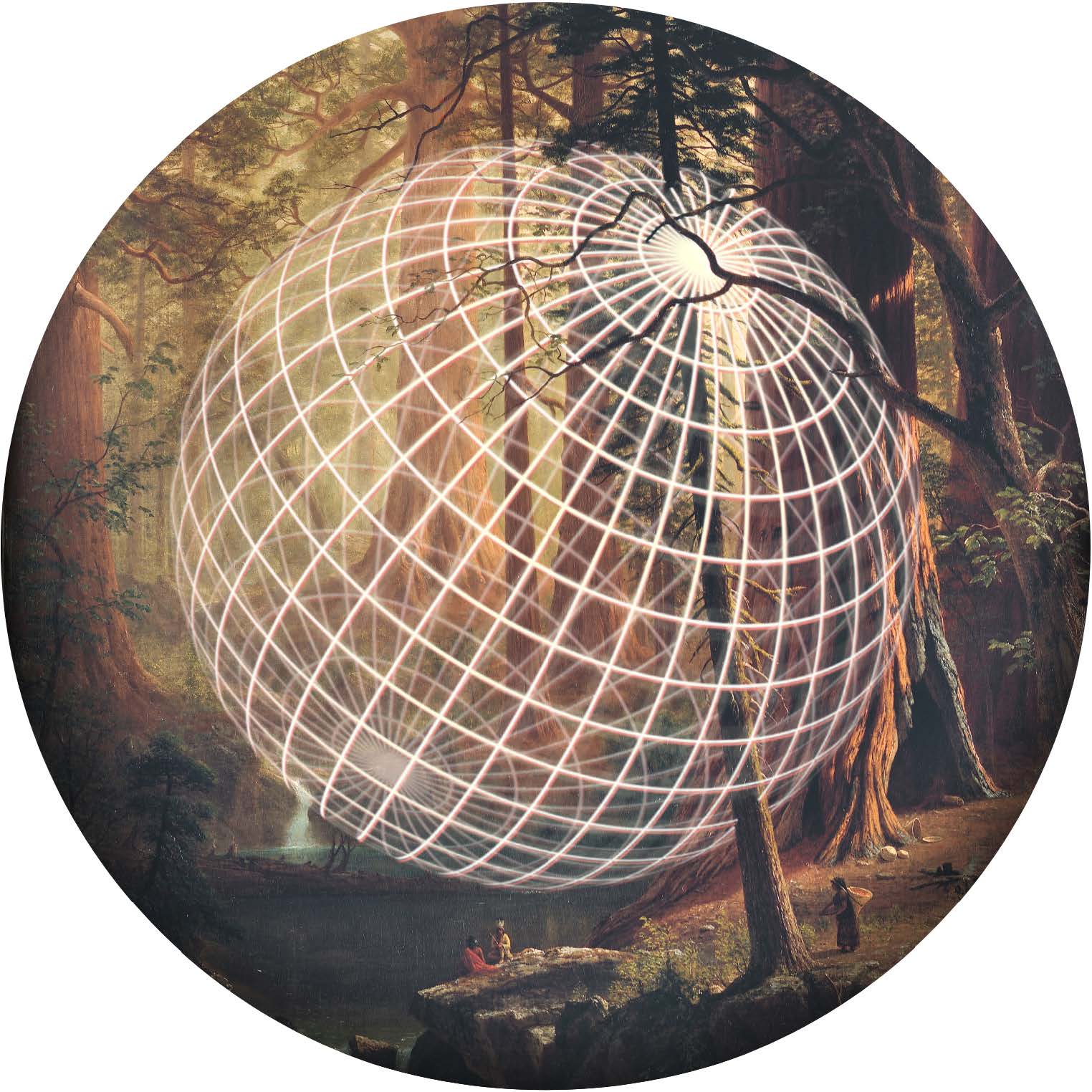 <p>Homotopy measures how spheres can be tangled in spaces; the logo shows a sphere tangled in a grove of California redwoods<br />The background painting is “Giant Redwood Trees of California” by Albert Bierstadt in 1874</p>
<p>Homotopy measures how spheres can be tangled in spaces; the logo shows a sphere tangled in a grove of California redwoods<br />The background painting is “Giant Redwood Trees of California” by Albert Bierstadt in 1874</p>The goal of this school will be to introduce students to several powerful cohomological tools that were brought to commutative algebra by Avramov in the 80s and 90s: Lie algebra methods from homotopy theory, and support theoretic methods from the representation theory of finite groups. These tools have have seen a huge array of applications that continue to grow, with several major developments in recent years, opening new connections to algebraic topology, noncommutative algebraic geometry, and representation theory.
Updated on Oct 03, 2025 10:23 AM PDT -
Dynamical Systems for Machine Learning and AI (IBM Yorktown)
Organizers: Soumyadip Ghosh (IBM Thomas J. Watson Research Center), LEAD Yingdong Lu (IBM Thomas J. Watson Research Center), Tomasz Nowicki (IBM Thomas J. Watson Research Center)
This Summer Graduate School aims to introducing graduate students to some aspects of contemporary modeling and analysis of dynamical systems in their interactions with machine learning and artificial intelligence (AI) applications.
Updated on Feb 06, 2026 01:59 PM PST -
Moduli of Varieties (SLMath)
Organizers: Kenneth Ascher (University of California, Irvine), Dori Bejleri (University of Maryland), Kristin DeVleming (University of California, San Diego)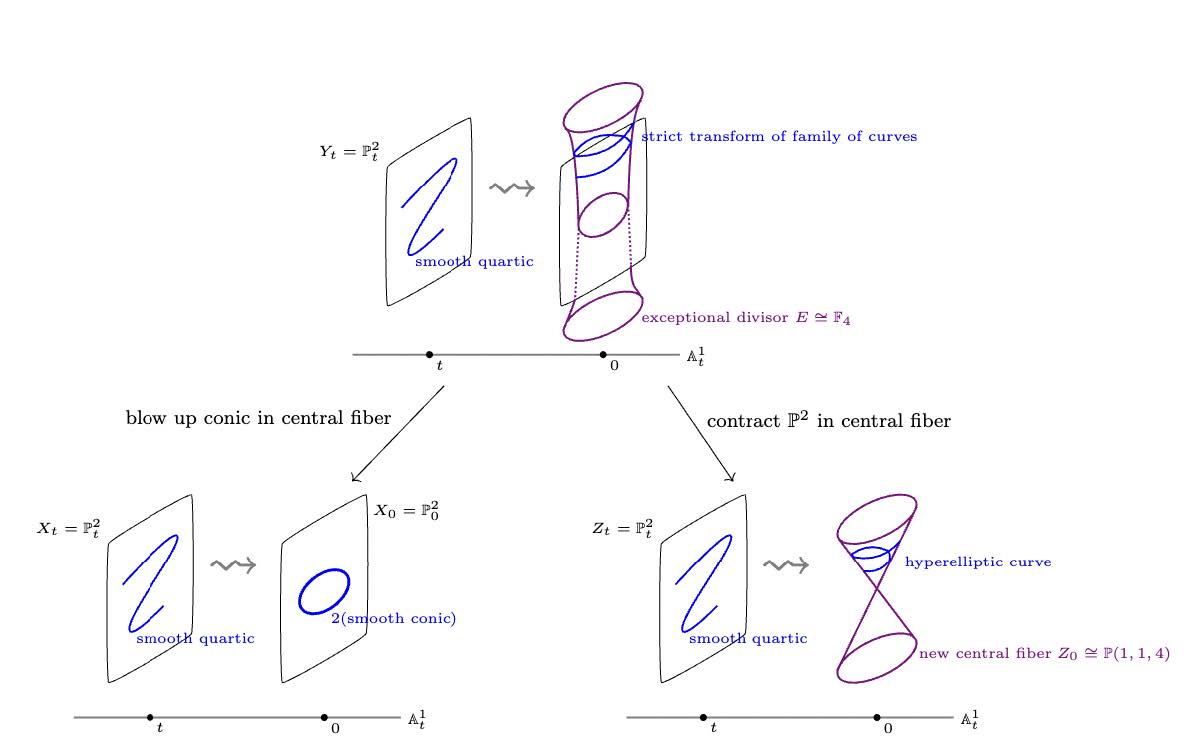 <p>A wall-crossing in a moduli problem</p>
<p>A wall-crossing in a moduli problem</p>One of the central problems in algebraic geometry is to classify so-called algebraic varieties: geometric shapes cut out by polynomial equations. Algebraic varieties are parametrized by certain moduli spaces (roughly: parameter spaces whose points correspond to these different varieties). The geometry of these moduli spaces encodes the ways of continuously deforming these shapes. Furthermore, classification questions for algebraic varieties often boil down to understanding the geometry of these moduli spaces. In the past few years, powerful new tools have been developed in moduli theory, especially for higher dimensional varieties – those which are of complex dimension at least two. The goal of this summer school is to provide an introduction to many of these recently emerging breakthroughs to enable graduate students to begin working in this area. The program will be motivated and often guided by examples and is intended to be accessible to a wide variety of students
Updated on Oct 07, 2025 09:46 AM PDT -
Pathways Workshop: Representation Theory Under the Influence of Quantum Field Theory & Motivic Homotopy Theory
Organizers: Ana Balibanu (Louisiana State University), Asilata Bapat (Australian National University), Teena Gerhardt (Michigan State University), Iva Halacheva (Northeastern University), LEAD Padmavathi Srinivasan (Boston University), Kirsten Wickelgren (Duke University)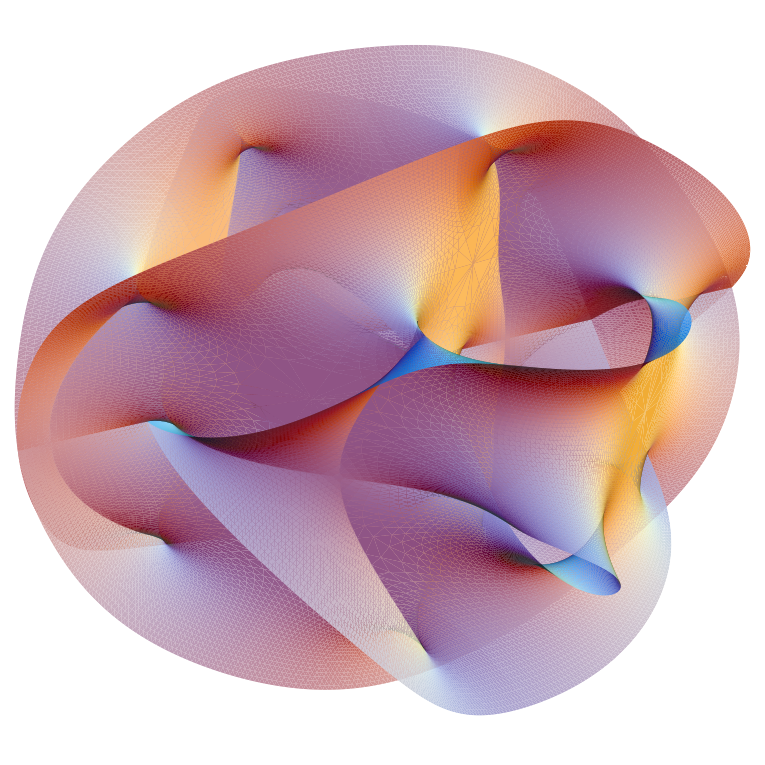 <p>Attribution: Lunch on Wikipedia</p>
<p>Attribution: Lunch on Wikipedia</p>This workshop is on recent developments in representation theory, quantum field theory, and motivic homotopy theory. Contemporary representation theory has been increasingly influenced by the mathematical development of supersymmetric gauge theories and mirror symmetry. Motivic homotopy theory—a version of homotopy theory for algebraic varieties and solutions to polynomial equations—has seen widespread modern applications. This three-day workshop aims to introduce researchers to these fields and their open problems, and to highlight recent progress. The workshop will include research lectures as well as activities to promote interaction and connections between the participants. This workshop is open to all mathematicians.
Updated on Jun 10, 2025 11:08 AM PDT -
Introductory Workshop: Representation Theory Under the Influence of Quantum Field Theory & Motivic Homotopy Theory
Organizers: David Ben-Zvi (University of Texas, Austin), Elden Elmanto (University of Toronto, Scarborough), Iva Halacheva (Northeastern University), LEAD Pavel Safronov (University of Edinburgh), Anand Sawant (Tata Institute of Fundamental Research), Peng Shan (Tsinghua University), Craig Westerland (University of Minnesota), Maria Yakerson (Institut de Mathématiques de Jussieu)The goal of this introductory workshop is to showcase some of the recent developments in motives and quantum field theory, with a focus on giving a high-level, but "outsider-friendly" introduction to both subjects. It will feature lectures introducing the modern formalism of sheaf theories, supersymmetric gauge theories, geometric representation theory and motivic spectra.
Updated on Jan 23, 2026 09:09 AM PST -
Geometric Representation Theory and 3d Mirror Symmetry
Organizers: Tudor Dimofte (University of Edinburgh), Joel Kamnitzer (McGill University), Sam Raskin (University of Texas, Austin), Peng Shan (Tsinghua University), LEAD Benjamin Webster (University of Waterloo; Perimeter Institute of Theoretical Physics) Image by Elliot Kienzle
Image by Elliot KienzleThis workshop will bring together theoretical physicists, representation theorists, algebraic geometers and symplectic geometers interested the connections between quantum field theory and geometric representation theory. The main topics to be discussed are mathematical aspects of 2d, 3d and 4d supersymmetric field theories, such as: topological twists and the resulting Higgs and Coulomb branches, relations to quantization and categorification, representations of vertex operator algebras, connections to enumerative geometry and quantum K-theory and elliptic cohomology, relations to knot homology and, finally, connections to the (relative) geometric Langlands program.
Updated on Jul 15, 2025 04:27 PM PDT -
Motivic homotopy theory: connections and applications
Organizers: Adrien Dubouloz (Universit'e de Poitiers), LEAD Dan Isaksen (Wayne State University), Sabrina Pauli (Technische Universitat Darmstadt)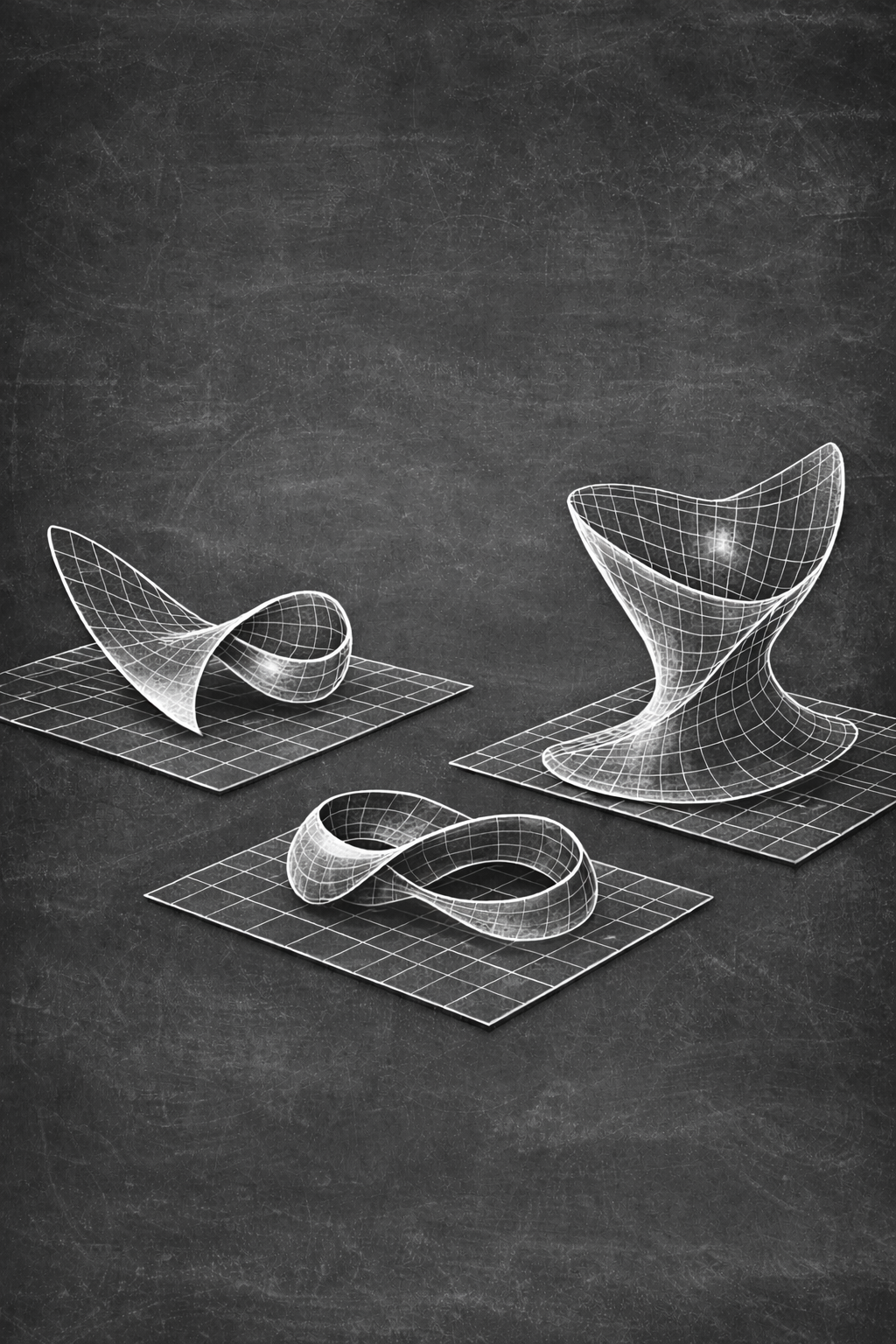
The workshop will bring together researchers at the forefront of ongoing work in motivic homotopy theory. Topics will include the application of motivic techniques to: geometry of affine algebraic varieties and algebraic vector bundles; computations in classical algebraic topology such as homotopy groups of spheres; and enumerative geometry. The workshop will also consider the internal foundational development of motivic homotopy theory itself.
Created on Oct 09, 2025 10:20 AM PDT -
Revisiting Fundamental Problems Workshop: Old Problems in Irrationality
Organizers: LEAD Frank Calegari (University of Chicago), Yunqing Tang (University of California, Berkeley), Wadim Zudilin (Radboud University Nijmegen)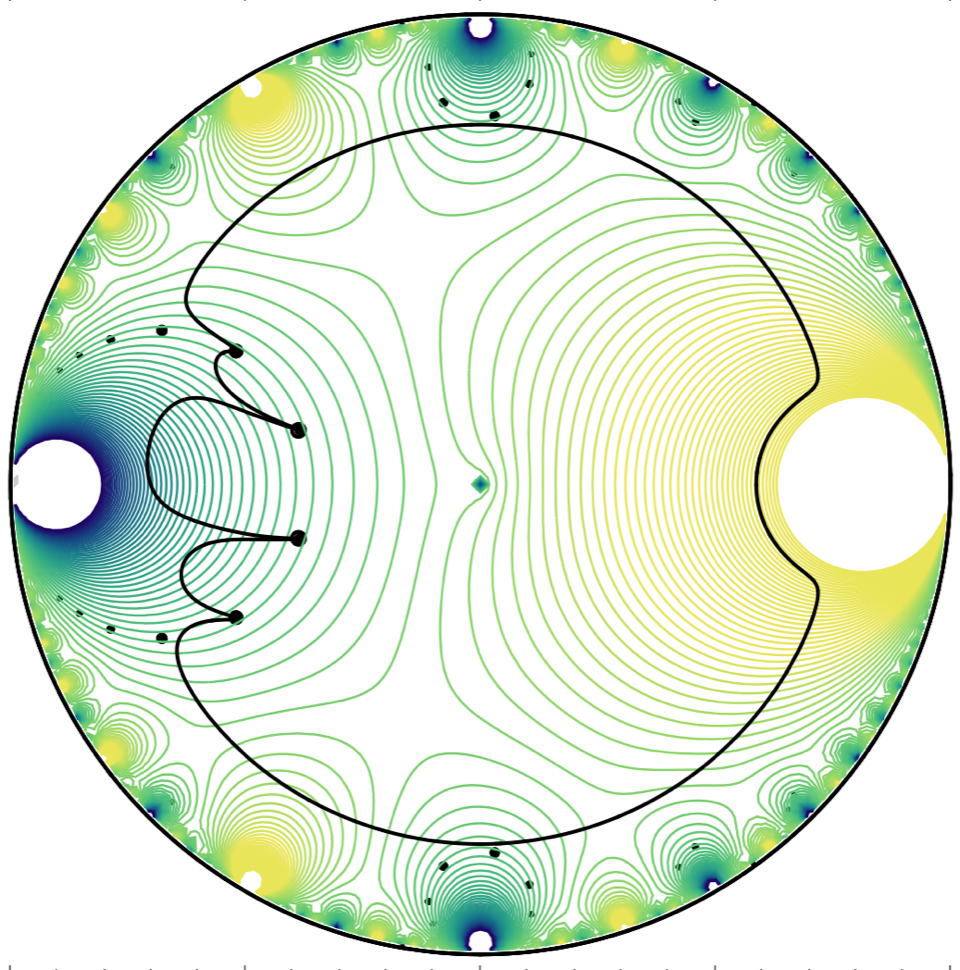 A contour used in [Calegari–Dimitrov–Tang, 2024] to prove L(2, χ−3) ∈/ Q.
A contour used in [Calegari–Dimitrov–Tang, 2024] to prove L(2, χ−3) ∈/ Q.In 1978, Apéry proved that ζ(3) was irrational. Almost 50 years later, we still don’t know if ζ(5) is irrational. Why not? The goal of this workshop is to bring together experts on explicit rational approximations and motivic differential equations to consider new approaches to these questions.
Updated on Jan 26, 2026 12:30 PM PST -
Hot Topics Workshop: Geometric Sen Theory, the p-adic Simpson Correspondence, and Modularity
Organizers: Rebecca Bellovin (Imperial College, London), LEAD Sean Howe (University of Utah), David Savitt (Johns Hopkins University), Matthias Strauch (Indiana University)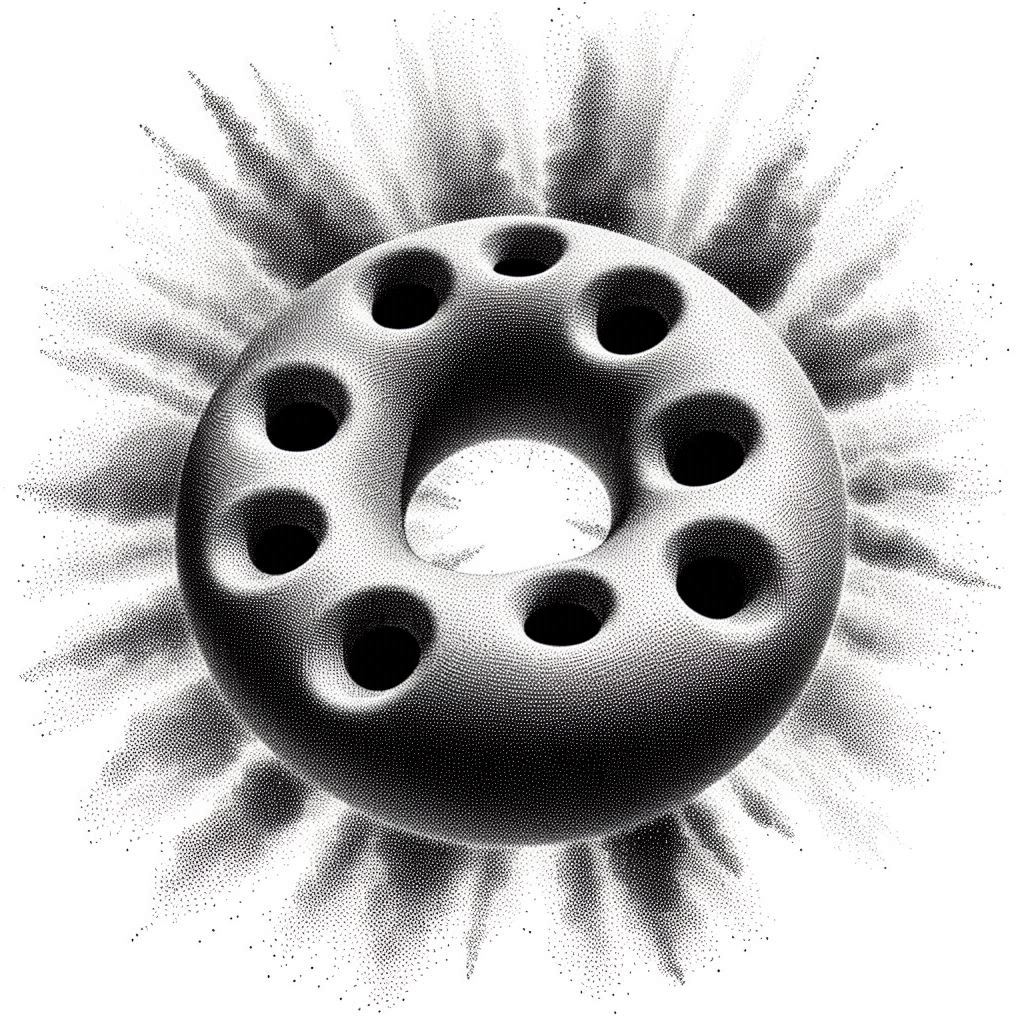 The perfectoid infinite level modular curve
The perfectoid infinite level modular curveThis workshop will focus on geometric Sen theory, its connections to the p-adic Simpson correspondence, and applications to modularity. In addition to three mini-courses, the workshop will feature research talks on related recent developments in p-adic Hodge theory and p-adic geometry.
Updated on Feb 06, 2026 01:34 PM PST -
Pathways Workshop: Algebraic Combinatorics & New Trends in Tropical Geometry
Organizers: Renzo Cavalieri (Colorado State University), Sylvie Corteel (Université de Paris VII (Denis Diderot); University of California, Berkeley), Olya Mandelshtam (University of Waterloo), LEAD Hannah Markwig (Eberhard-Karls-Universität Tübingen), Sarah Mason (Wake Forest University), Kris Shaw (University of Oslo)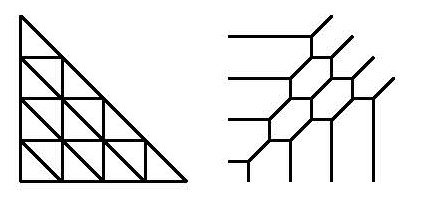
This workshop presents introductory talks and new trends in tropical geometry and algebraic combinatorics, including interactions between tropical geometry and enumerative, logarithmic, nonarchimedean, and real algebraic geometry, mirror symmetry and symplectic geometry, moduli spaces in tropical geometry, the geometry of matroids, integrable systems and dynamical combinatorics, combinatorial representation theory, geometry of polynomials, combinatorial varieties and connections to symmetric function theory and cluster algebras.
Updated on Jan 23, 2026 03:42 PM PST -
Introductory Workshop: Algebraic Combinatorics & New Trends in Tropical Geometry
Organizers: Philippe Di Francesco (University of Illinois at Urbana-Champaign), LEAD Ilia Itenberg (Institut de Mathématiques de Jussieu - Paris Rive Gauche), Svante Linusson (Royal Institute of Technology), Sam Payne (University of Michigan; University of Texas, Austin), LEAD Colleen Robichaux (University of California, Los Angeles), Kris Shaw (University of Oslo), Lauren Williams (Harvard University), Josephine Yu (Georgia Institute of Technology)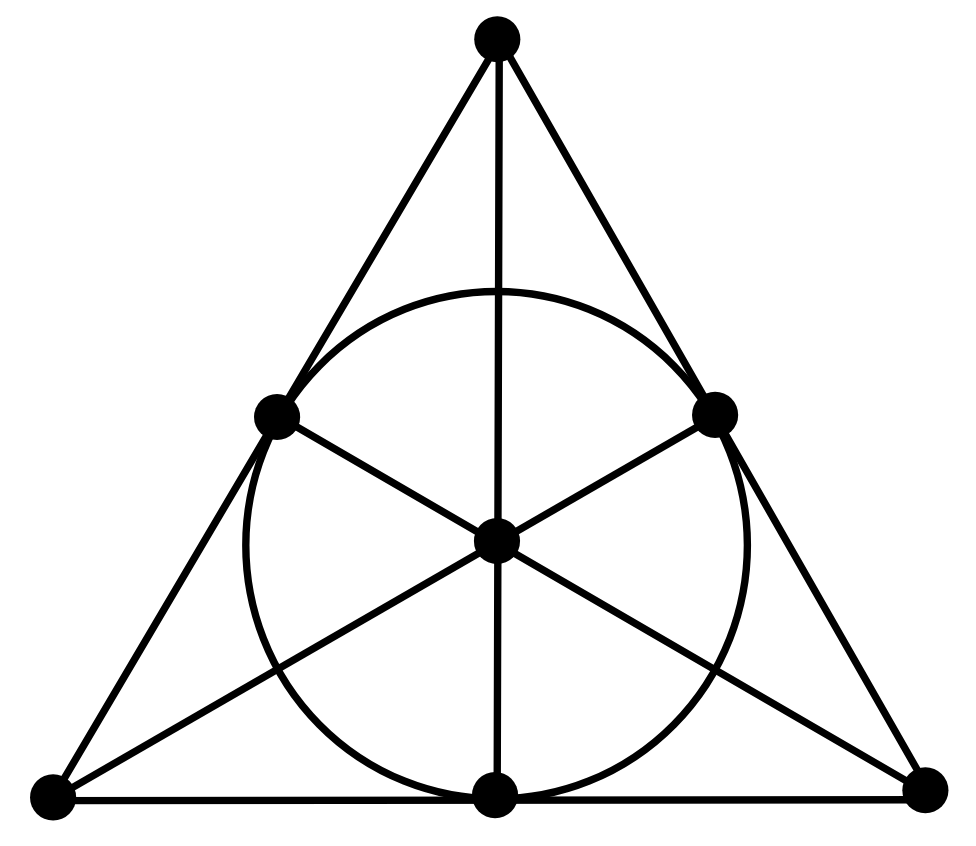 Fano plane
Fano planeThe workshop will include three minicourses on key topics in Algebraic Combinatorics & Tropical Geometry: combinatorial representation theory, combinatorial algebraic varieties and their connections to various polynomial bases, combinatorial and algebro-geometric facets of matroids, enumerative tropical geometry, real aspects of tropical geometry and connections with A1-homotopy theory.
The minicourses will be intended for a broad audience, with the goal of providing background and motivation in these topics.Updated on Jan 23, 2026 03:42 PM PST -
Recent Developments in Algebraic Combinatorics
Organizers: Sara Billey (University of Washington), LEAD Christian Gaetz (University of California, Berkeley), Melissa Sherman-Bennett (University of California, Davis), Cynthia Vinzant (University of Washington)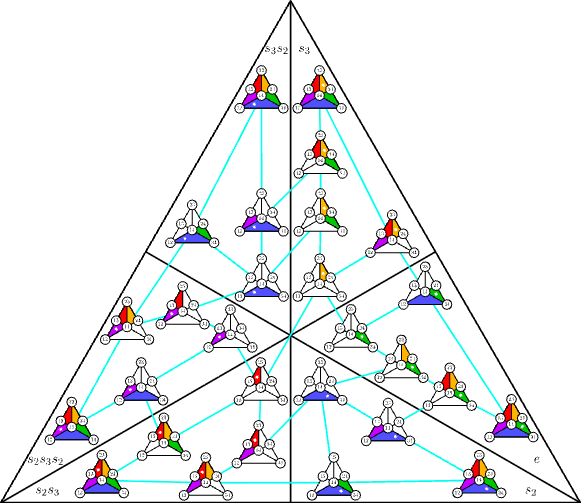 <p>This figure encodes the combinatorics of a triangulation of the permutahedron. Figure appears in Defant--Sherman-Bennett--<wbr />Williams <a data-saferedirecturl="https://www.google.com/url?q=https://arxiv.org/pdf/2509.11497&source=gmail&ust=1769544428157000&usg=AOvVaw1E-v0MZ1v_EyqlWLiqlPNw" href="https://arxiv.org/pdf/2509.11497" target="_blank">https://arxiv.org/<wbr />pdf/2509.11497</a>.</p>
<p>This figure encodes the combinatorics of a triangulation of the permutahedron. Figure appears in Defant--Sherman-Bennett--<wbr />Williams <a data-saferedirecturl="https://www.google.com/url?q=https://arxiv.org/pdf/2509.11497&source=gmail&ust=1769544428157000&usg=AOvVaw1E-v0MZ1v_EyqlWLiqlPNw" href="https://arxiv.org/pdf/2509.11497" target="_blank">https://arxiv.org/<wbr />pdf/2509.11497</a>.</p>This workshop will bring together researchers at the cutting edge of algebraic combinatorics. The topics will include integrable systems, dynamical combinatorics, combinatorial representation theory with connections to theoretical computer science, the geometry of polynomials, cluster algebras, combinatorial algebraic geometry, and symmetric functions.
Updated on Jan 27, 2026 01:21 PM PST -
Enumerative aspects of tropical geometry
Organizers: Hulya Arguz (University of Georgia), LEAD Pierrick Bousseau (University of Georgia), M. Angelica Cueto (Ohio State University), Grigory Mikhalkin (Université de Genève)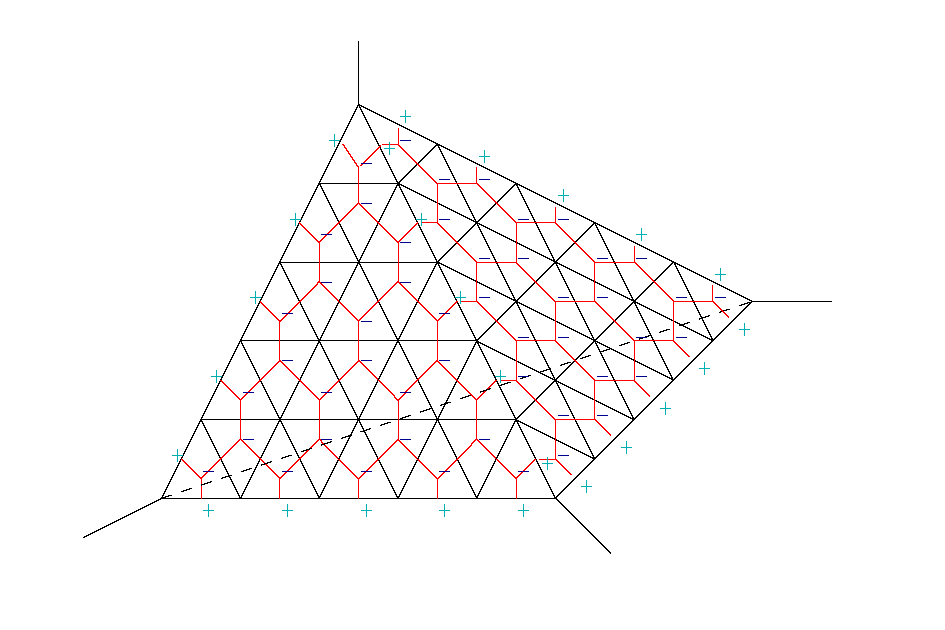 The discriminant locus in the base of a Lagrangian torus fibration on the quintic threefold.
The discriminant locus in the base of a Lagrangian torus fibration on the quintic threefold.This workshop will focus on enumerative aspects of tropical geometry and tropical moduli spaces. The meeting will bring together researchers from several different areas in real and complex geometry, symplectic geometry, mirror symmetry and non-Archimedean geometry.
Updated on Jan 26, 2026 12:59 PM PST
Past all workshops
-
Workshop Introductory Workshop: : Topological and Geometric Structures in Low Dimensions & Geometry and Dynamics for Discrete Subgroups of Higher Rank Lie Groups
Organizers: Federica Fanoni (Université Paris-Est Créteil Val-de-Marne), Steven Frankel (Washington University), LEAD Yair Minsky (Yale University), Amir Mohammadi (University of California, Berkeley), Andrés Sambarino (Université de Paris VII (Denis Diderot) et Université de Paris VI (Pierre et Marie Curie)), Barbara Schapira (Université de Picardie (Jules Verne)), Genevieve Walsh (Tufts University)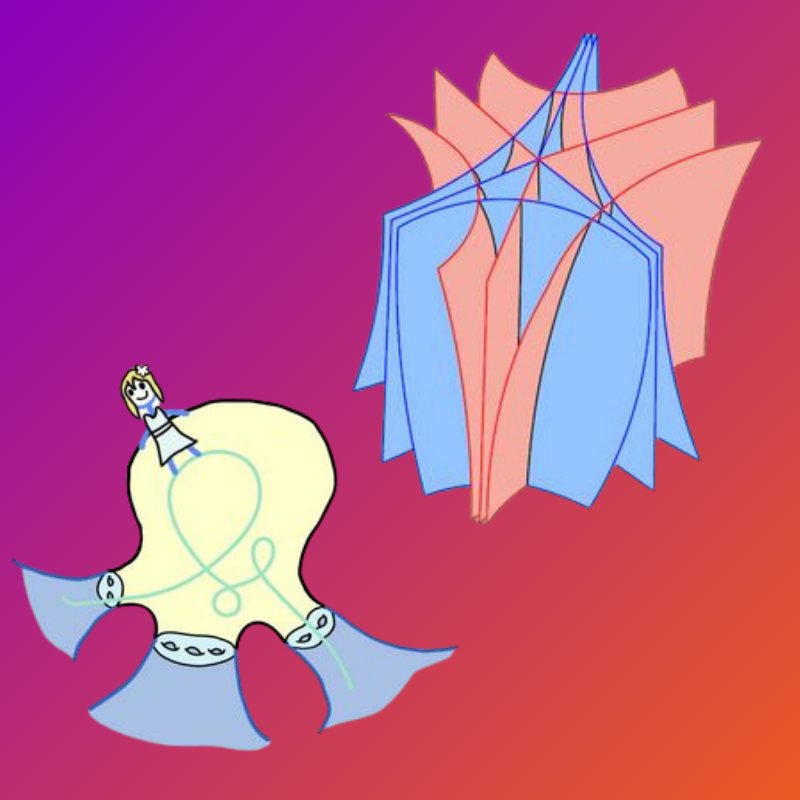
The joint introductory workshop for the programs in Geometry and Dynamics for Discrete Subgroups of Higher Rank Lie Groups and Topological and Geometric Structures in Low Dimensions will feature lectures introducing subjects of interest to both programs, including Teichmuller Theory, geometry in higher rank, foliations and flows, Anosov groups and thermodynamic formalism, mapping class groups, counting and equidistribution, and related topics. Minicourses will be targeted at early career researchers as well as specialists looking to find connections between the different subjects.
Updated on Feb 09, 2026 10:40 AM PST -
Workshop Pathways Workshop: Topological and Geometric Structures in Low Dimensions & Geometry and Dynamics for Discrete Subgroups of Higher Rank Lie Groups
Organizers: Martin Bridgeman (Boston College), Lei Chen (University of Chicago; University of Maryland), Beibei Liu (Ohio State University), Maria Beatrice Pozzetti (Università di Bologna), Rachel Roberts (Washington University in St. Louis), Jing Tao (University of Oklahoma)
This workshop features a series of invited talks by experts across the fields of low-dimensional topology, homogeneous dynamics, and the geometry of symmetric spaces. Spanning all career stages, the event aims to foster a collaborative and supportive environment, particularly for early-career mathematicians, encouraging engagement, learning, and exploration in a welcoming academic setting.
Updated on Jan 23, 2026 05:04 PM PST -
Workshop Revisiting Fundamental Problems Workshop: Infinite-Dimensional Division Algebras - Algebraicity and Freeness
Organizers: Agata Atkarskaia (Guangdong Technion - Israel Institute of Technology), Jason Bell (University of Waterloo), LEAD Be'eri Greenfeld (University of California, San Diego), Susan Sierra (University of Edinburgh), LEAD James Zhang (University of Washington) Tribute to Hamilton's graffiti of the Quaternion Division Algebra, County Dublin, Ireland. Photo: Professor Peter Gallagher, Director Dublin Institute for Advanced Studies Dunsink Observatory (courtesy DIAS)
Tribute to Hamilton's graffiti of the Quaternion Division Algebra, County Dublin, Ireland. Photo: Professor Peter Gallagher, Director Dublin Institute for Advanced Studies Dunsink Observatory (courtesy DIAS)Infinite-dimensional division algebras are essential in noncommutative algebra and noncommutative algebraic geometry, yet they have remained cryptic and largely unclassified. This workshop will address three key classical open problems concerning them: the Kurosh Problem, the Free Subalgebra Problem and Artin's Conjecture. We will review decades of progress on these wide-open problems and emphasize novel techniques and emerging theories and concepts that show promise in facilitating breakthroughs.
Updated on Dec 04, 2025 01:49 PM PST -
Workshop Recent Trends in Stochastic Partial Differential Equations
Organizers: Sandra Cerrai (University of Maryland), LEAD Ilya Chevyrev (International School for Advanced Studies (SISSA/ISAS)), Yu Deng (University of Chicago) The motion of a random string.
The motion of a random string.The workshop aims to bring together researchers working on different facets of stochastic PDEs. The field of stochastic PDEs has seen many new techniques recently appear to tackle different problems, including renormalization, large scale and long-time behaviours, stochastic fluid dynamics, and homogenization. The goal of the workshop is to facilitate discussions and allow different communities to engage with one another one.
Updated on Nov 24, 2025 03:38 PM PST -
Workshop Kinetic Theory: Novel Statistical, Stochastic and Analytical Methods
Organizers: Irene M. Gamba (University of Texas, Austin), LEAD Weiran Sun (Simon Fraser University) Top: Neutrino interactions and neutrino-atom interactions. Bottom: Collision of two "waves"
Top: Neutrino interactions and neutrino-atom interactions. Bottom: Collision of two "waves"This workshop will explore the latest advances in kinetic theory and stochastic particle dynamics in mean field regimes, covering both classical themes and emerging areas. Topics will include the derivation of kinetic type equations from particle and plasma systems, state-of-the-art numerical methods, studies of multiscale phenomena, and the applications of kinetic equations in physics, chemistry, computer sciences appearing in life sciences, social sciences, and machine learning. This workshop will offer an exciting opportunity to connect researchers from all stages and sub-areas and spark new ideas.
Updated on Oct 24, 2025 10:44 AM PDT -
Workshop Lean for PDEs, an ICARM & SLMath collaboration
Organizers: Jeremy Avigad (Carnegie Mellon University; Institute for Computer-Aided Reasoning in Mathematics (ICARM)), Matthew Ballard (Institute for Computer-Aided Reasoning in Mathematics (ICARM)), Tatiana Toro (MSRI / Simons Laufer Mathematical Sciences Institute (SLMath); University of Washington)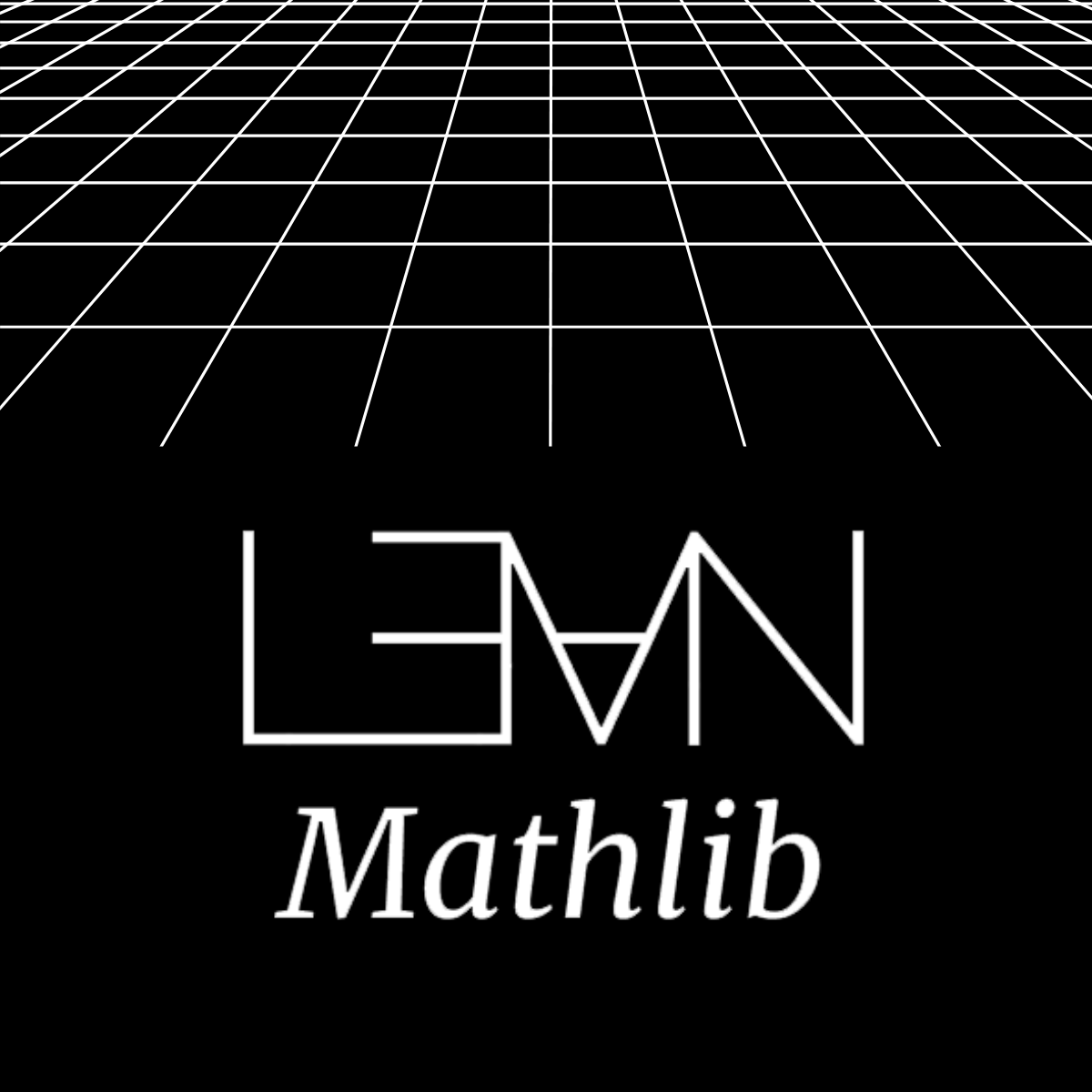
Computational proof assistants let us build global, digital libraries of mathematics where every theorem is fully verified by a computer. In this workshop, you'll get to explore this exciting new technology and the ideas behind it, with a special focus on formalizing partial differential equations (PDEs). The Lean mathematical library, Mathlib, is a community-driven effort to build a unified library of mathematics formalized in the Lean proof assistant. The main goal of this workshop is to help you start tangible projects that will contribute to the PDE section of the Mathlib library.
Updated on Sep 15, 2025 12:12 PM PDT -
Workshop Introductory Workshop: Kinetic Theory & Stochastic Partial Differential Equations
Organizers: Davar Khoshnevisan (University of Utah), Qin Li (University of Wisconsin-Madison), LEAD Konstantin Matetski (Michigan State University), Andrea Nahmod (University of Massachusetts, Amherst), Chiara Saffirio (Universität Basel), Xiangchan Zhu (Chinese Academy of Sciences) Parameter scan for deploying external electric field to control two-stream instability for Vlasov-Poisson.
Parameter scan for deploying external electric field to control two-stream instability for Vlasov-Poisson.The goal of the workshop is to introduce non-experts to two active research areas: kinetic theory and stochastic partial differential equations. Kinetic theory studies the properties of interacting particle systems modeling various processes in non-equilibrium statistical mechanics. Stochastic partial differential equations describe dynamics subjected to random noises. The methods from the two areas complement each other in studies of the phenomena arising in physics, economics, life sciences, etc.
Updated on Aug 28, 2025 10:56 AM PDT -
Workshop Pathways Workshop: Kinetic Theory & Stochastic Partial Differential Equations
Organizers: LEAD Raluca Balan (University of Ottawa), François Golse (Centre de Mathématiques Laurent Schwartz, École Polytechnique), Qin Li (University of Wisconsin-Madison), Xiaoming Song (Drexel University; Drexel University), Rongchan Zhu (Beijing Institute of Technology)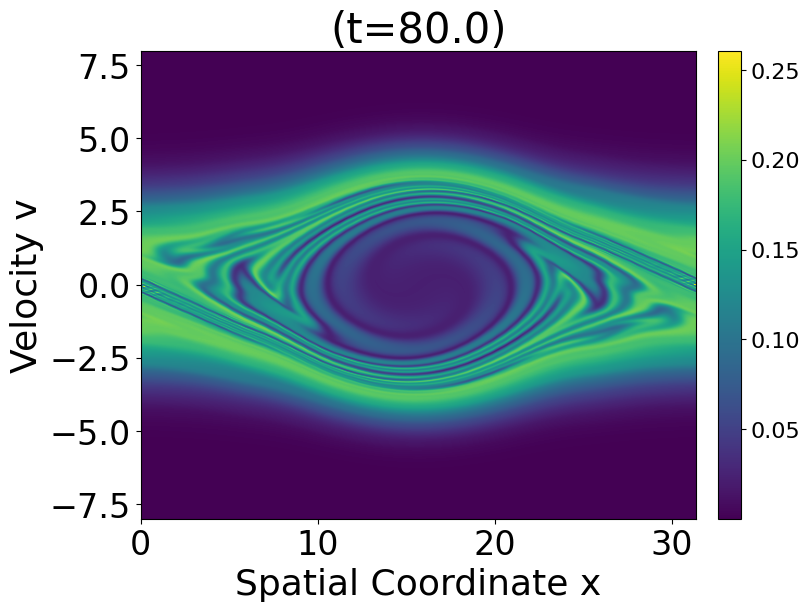
The Pathways workshop will bring together leading experts working at the intersection of kinetic theory and stochastic partial differential equations (SPDEs).
Updated on Aug 22, 2025 11:48 AM PDT -
Summer Graduate School Topological and Geometric Structures in Low Dimensions (SLMath)
Organizers: LEAD Kenneth Bromberg (University of Utah), Kathryn Mann (Cornell University) <p>Laminations arise naturally in hyperbolic geometry and (pseudo-) Anosov flows [Image by Jeffrey Brock]</p>
<p>Laminations arise naturally in hyperbolic geometry and (pseudo-) Anosov flows [Image by Jeffrey Brock]</p>This school will serve as an introduction to the SLMath semester “Topological and Geometric Structures in Low-Dimensions”. The school consists of two mini-courses: one on Teichmüller Theory and Hyperbolic 3-Manifolds and the other on Anosov Flows on Geometric 3-Manifolds. Both topics lie at the interface of low-dimensional geometric topology (specifically, surfaces, foliations, and 3-manifolds) and low-dimensional dynamics. The first course will be targeted towards students who have completed the standard first year graduate courses in geometry, topology, and analysis while the second course will geared towards more advanced students who are closer to beginning research. However, we expect that all students will benefit from both courses.
Updated on Nov 03, 2025 12:23 PM PST -
Summer Graduate School Geometry and Dynamics in Higher Rank Lie Groups (UC Berkeley)
Organizers: Richard Canary (University of Michigan), Sara Maloni (University of Virginia), Wenyu Pan (University of Toronto; University of Toronto), Cagri Sert (University of Zurich), LEAD Tengren Zhang (National University of Singapore) <p>Flats and hyperbolic planes in a higher rank symmetric space</p> Drawn by Steve Trettel.
<p>Flats and hyperbolic planes in a higher rank symmetric space</p> Drawn by Steve Trettel.Lie groups are central objects in modern mathematics; they arise as the automorphism groups of many homogeneous spaces, such as flag manifolds and Riemannian symmetric spaces. Often, one can construct manifolds locally modelled on these homogeneous spaces by taking quotients of their subsets by discrete subgroups of their automorphism groups. Studying such discrete subgroups of Lie groups is an active and growing area of mathematical research. The objective of this summer school is to introduce young researchers to a class of discrete subgroups of Lie groups, called Anosov subgroups.
Updated on Nov 03, 2025 01:16 PM PST -
Summer Graduate School Principled Scientific Discovery with Formal Methods (IBM, Yorktown)
Organizers: Kenneth Clarkson (IBM Research Division), Cristina Cornelio (Samsung AI), Claudia D Ambrosio (Centre National de la Recherche Scientifique (CNRS); École Polytechnique), Sanjeeb Dash (IBM Thomas J. Watson Research Center), Lior Horesh (IBM Thomas J. Watson Research Center)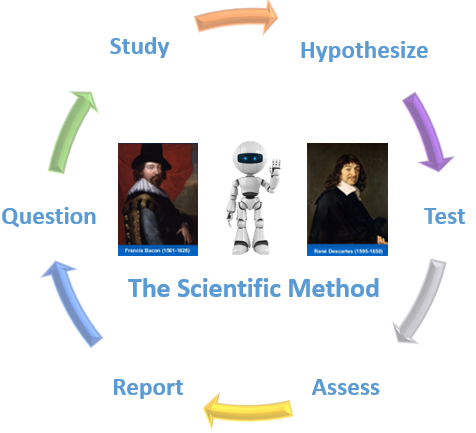 <p>The traditional scientific method cycle, with Francis Bacon and Rene Descartes, its concievers in the center, alongside formal and statistical AI machinary, as a propsective evolution of the method. <br /> </p>
<p>The traditional scientific method cycle, with Francis Bacon and Rene Descartes, its concievers in the center, alongside formal and statistical AI machinary, as a propsective evolution of the method. <br /> </p>The summer school aims to expose participants to formal methods that can facilitate principled scientific discovery. The school will cover some of the basic automated statistical inference (in the form of machine learning techniques) and reasoning methods that are commonly used in scientific discovery, as well as novel techniques developed to tackle open questions and issues. This summer school will address novel computational methods for scientific discovery and focus on fusing axiomatic knowledge and experimental data to enable principled derivations of models of natural phenomena along with certificates of the consistency of these models with background knowledge specified as axioms.
Updated on Aug 14, 2025 02:37 PM PDT -
Summer Graduate School Computer Assisted Proofs in Applied Mathematics (SLMath)
Organizers: LEAD Jonathan Jaquette (New Jersey Institute of Technology), Evelyn Sander (George Mason University)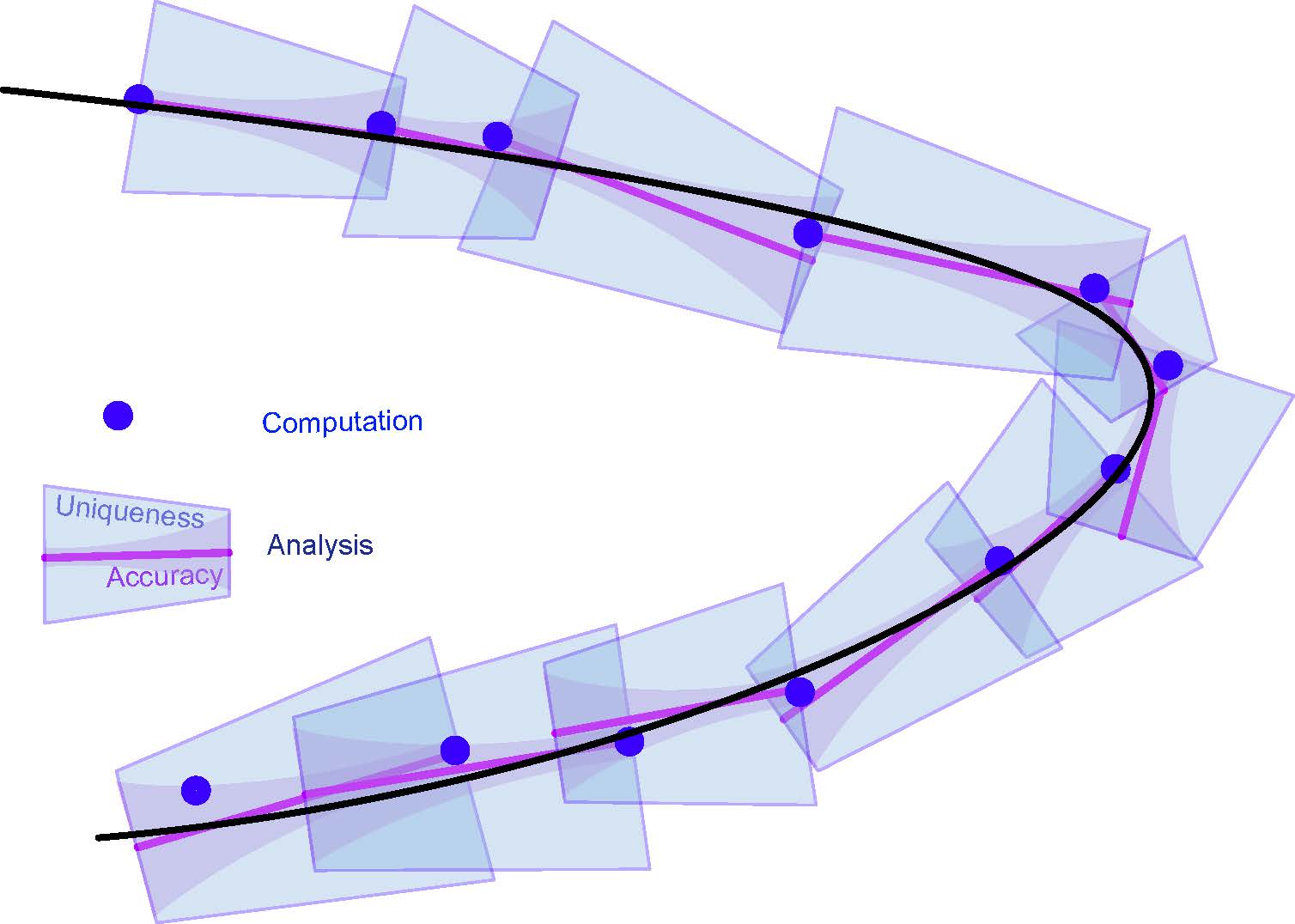
One of the core elements of applied mathematics is mathematical modeling consisting of nonlinear equations such as ODEs, and PDEs. A fundamental difficulty which arises is that most nonlinear models cannot be solved in closed form. Computer assisted proofs are at the forefront of modern mathematics and have led to many important recent mathematical advances. They provide a way of melding analytical techniques with numerical methods, in order to provide rigorous statements for mathematical models that could not be treated by either method alone. In this summer school, students will review standard computational and analytical techniques, learn to combine these techniques with more specialized methods of interval arithmetic, and apply these methods to establish rigorous results in otherwise intractable problems
Updated on Nov 03, 2025 01:45 PM PST -
Summer Graduate School Noncommutative Algebraic Geometry (Antwerp, Belgium)
Organizers: Pieter Belmans (University of Luxembourg), Lander Hermans (Universiteit Antwerp), Wendy Lowen (Universiteit Antwerpen), Arne Mertens (Universiteit Antwerp), Michel VAN DEN BERGH (Hasselt University), Špela Špenko (Université Libre de Bruxelles)
The school will consist of two courses: Homological Mirror Symmetry and Algebraic Models for Spaces. These courses will be planned and taught by organisers with the help of teaching assistants for the problem sessions. The school will be aimed at a wide range of graduate students, from students with a Bachelor degree to beginning PhD students. The lectures and problem sessions will be complemented by a poster session in week one and a total of four introductory research talks on Friday afternoons.
Updated on May 22, 2025 10:57 AM PDT -
Summer Graduate School New Perspectives on Discriminants and Applications (Leipzig, Germany)
Organizers: Eliana Duarte (Centro de Matemática da Universidade do Porto), Serkan Hosten (San Francisco State University), Simon Telen (Max-Planck-Institut)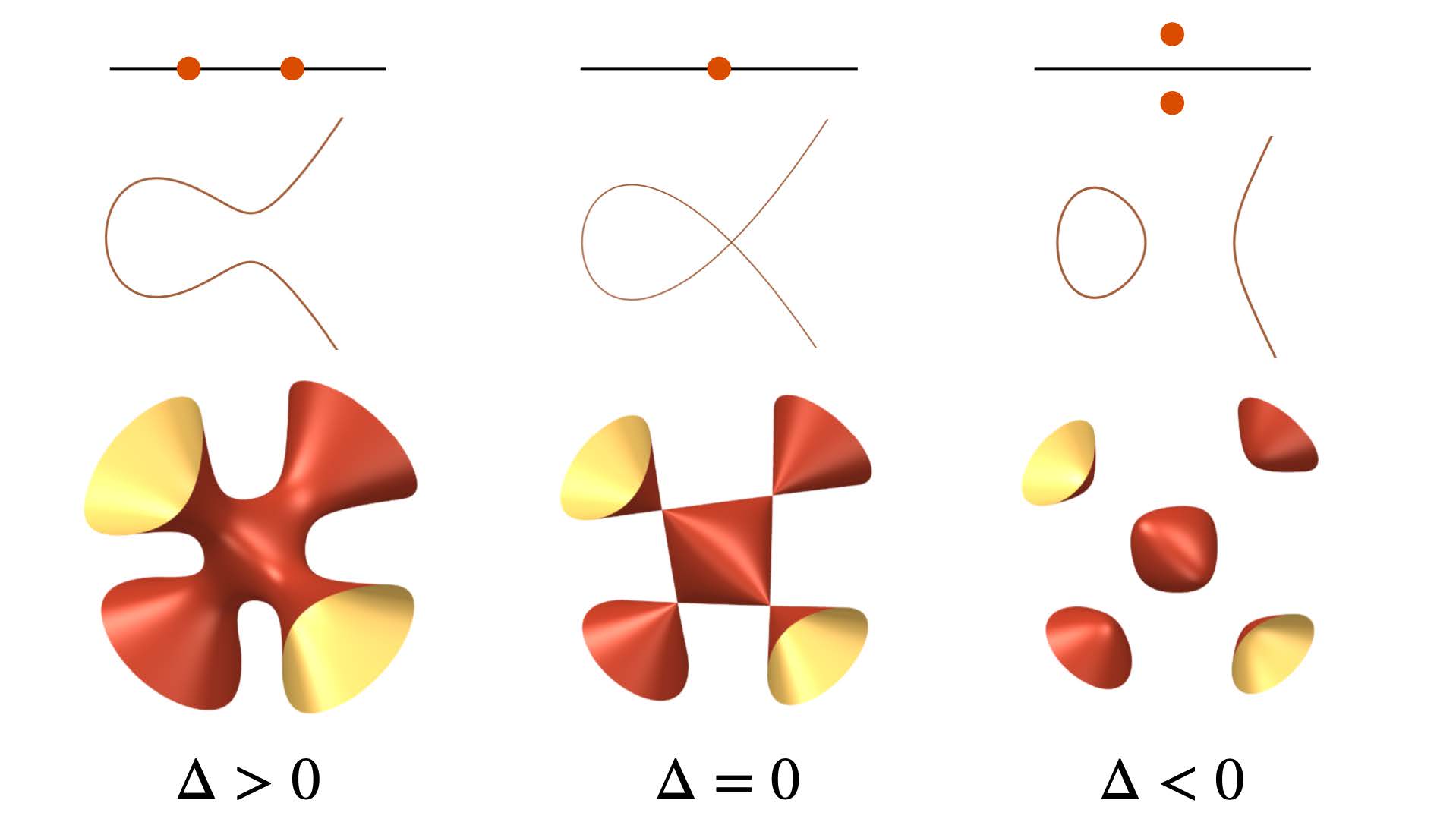 <p>The discriminant ∆ detects singular varieties. The picture shows three different scenarios: solutions of quadratic polynomials, cubic plane curves and cubic surfaces.</p>
<p>The discriminant ∆ detects singular varieties. The picture shows three different scenarios: solutions of quadratic polynomials, cubic plane curves and cubic surfaces.</p>This summer school will offer a hands-on introduction to discriminants, with a view towards modern applications. Starting from the basics of computational algebraic geometry and toric geometry, the school will gently introduce participants to the foundations of discriminants. A particular emphasis will be put on computing discriminants of polynomial systems using computer algebra software. Then, we will dive into three applications of discriminants: algebraic statistics, geometric modeling, and particle physics. Here, discriminants contribute to the study of maximum likelihood estimation, to finding practical parametrizations of geometric objects, and to computations of scattering amplitudes. We will explain recently discovered unexpected connections between these three applications. In addition to lectures, the summer school will have daily collaborative exercise sessions which will be guided by the teaching assistants and will include software demonstrations.
Updated on Jul 03, 2025 09:26 AM PDT -
Summer Graduate School Graphical Models in Algebraic Combinatorics (SLMath)
Organizers: Christian Gaetz (University of California, Berkeley), David Keating (University of Illinois at Urbana-Champaign), Melissa Sherman-Bennett (University of California, Davis), LEAD Anna Weigandt (University of Minnesota)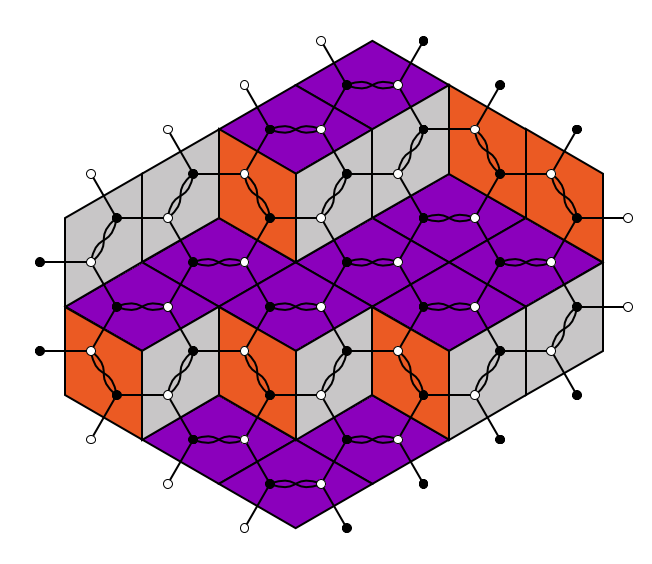 <p>A plane partition and an hourglass plabic graph</p>
<p>A plane partition and an hourglass plabic graph</p>This school will introduce students to a range of powerful combinatorial tools used to understand algebraic objects ranging from the homogeneous coordinate ring of the Grassmannian to symmetric functions. The summer school will center around two main lecture series "Webs and Plabic Graphs" and "Vertex Models and Applications". While the exact applications differ, both courses will center on graphical models for algebraic problems closely related to Grassmannian and its generalizations. This school will be accessible to a wide range of students. Students will leave the school with a solid grasp of the combinatorics of webs, plabic graphs, and the six-vertex model, an understanding of their algebraic applications, and a taste of current research directions.
Updated on Jul 02, 2025 10:42 AM PDT -
Summer Graduate School Mathematics of Sea Ice and Polar Ecosystems (Fairbanks, Alaska)
Organizers: Kenneth Golden (University of Utah), Jody Reimer (University of Utah)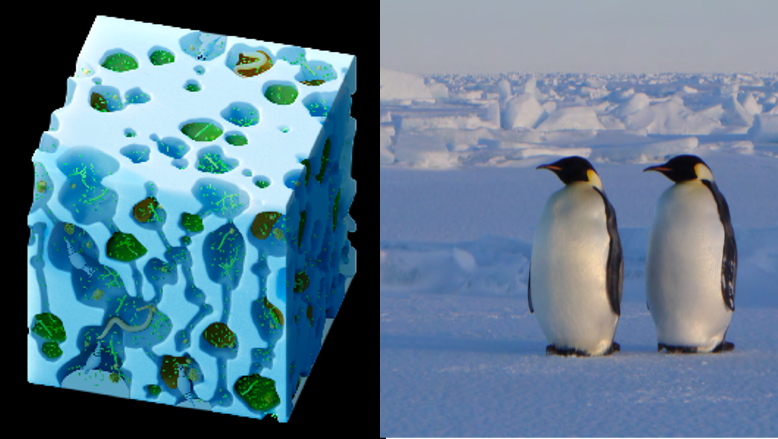 From micro to macro, sea ice supports life in the polar regions. Left: illustration of the porous sea ice microstructure, home to a microbial community of ice endemic organisms including bacteria and algae. Right: two penguins on Antarctic sea ice.
From micro to macro, sea ice supports life in the polar regions. Left: illustration of the porous sea ice microstructure, home to a microbial community of ice endemic organisms including bacteria and algae. Right: two penguins on Antarctic sea ice.In this summer school, students will be introduced to mathematical and computational modeling of sea ice and polar ecosystems. As a material, sea ice is a multiscale composite structured on length scales ranging from tenths of millimeters to tens of kilometers. From tiny brine inclusions and surface melt ponds of increasing complexity, to ice floes of varying sizes in a seawater host, a principal challenge is how to find sea ice effective properties that are relevant to larger scale models, given data on smaller scale structures. Similarly, the sea ice ecosystem ranges from algae living in the brine inclusions to charismatic megafauna like penguins and polar bears, whose diets depend critically, down the line, on the tiny sea ice extremophiles. The dynamics of sea ice microbial communities are regulated by the physics of the ice microstructure, and, in turn, many of these microbes modify their environment by secreting extracellular polymeric substances. In addition to sea ice and its ecosystems, we will consider broader mathematical models including energy balance models, tipping points, and global circulation models.
Updated on Jun 10, 2025 09:42 AM PDT -
MSRI-UP MSRI-UP 2025: Quantitative Justice
Organizers: Alexander Diaz-Lopez (Villanova University), Maria Mercedes Franco (Queensborough Community College (CUNY)), Rebecca Garcia (Colorado College), Omayra Ortega (Sonoma State University), Candice Price (Smith College), LEAD Robin Wilson (Loyola Marymount University)The MSRI-UP summer program is designed to serve a diverse group of undergraduate students who would like to conduct research in the mathematical sciences.
In 2025, MSRI-UP will focus on Quantitative Justice. The research program will be led by Dr. Omayra Y. Ortega, Associate Professor in the Department of Mathematics at Sonoma State University.
Updated on Dec 11, 2025 12:32 PM PST -
Summer Graduate School Statistical Optimal Transport (SLMath)
Organizers: LEAD Promit Ghosal (University of Chicago), Jonathan Niles Weed (New York University, Courant Institute), Marcel Nutz (Columbia University)
This summer school offers an exceptional opportunity for participants to delve into the intricate realm of statistical optimal transport theory. This captivating field stands at the crossroads of multiple disciplines, drawing from a rich tapestry of mathematical insights from diverse subjects, including partial differential equations, stochastic analysis, convex geometry, statistics, and machine learning, crafting a vibrant and interdisciplinary landscape. The foremost objective of this summer school is to create a dynamic learning environment that unites students from diverse backgrounds such as PDE theory, probability, or optimal transport.
Updated on Nov 03, 2025 01:32 PM PST -
Summer Graduate School 2025 PIMS-CRM Summer School in Probability (Vancouver, Canada)
Organizers: Louigi Addario-Berry (McGill University), Omer Angel (University of British Columbia), Mathav Murugan (University of British Columbia), Gordon Slade (University of British Columbia)The Summer Schools in Probability are a highlight of Canadian probability and are internationally significant. Launched by PIMS in 2004, the school takes the form of two main 4-week courses along with three mini-courses. The schools have played a major role in the development of an exceptionally strong community of young probabilist in Canada, North America and overseas. This will be the 13th time this school has run.
Updated on Jul 01, 2025 11:35 AM PDT -
Summer Graduate School Local Limits of Random Graphs (Paris-Saclay University, France)
Organizers: Ainhoa Aparicio-Monforte (Fondation Mathématique Jacques Hadamard (FMJH)), Alexandra Genesco (Fondation Mathématique Jacques Hadamard (FMJH)), LEAD Pascal Massart (Fondation Mathématique Jacques Hadamard (FMJH))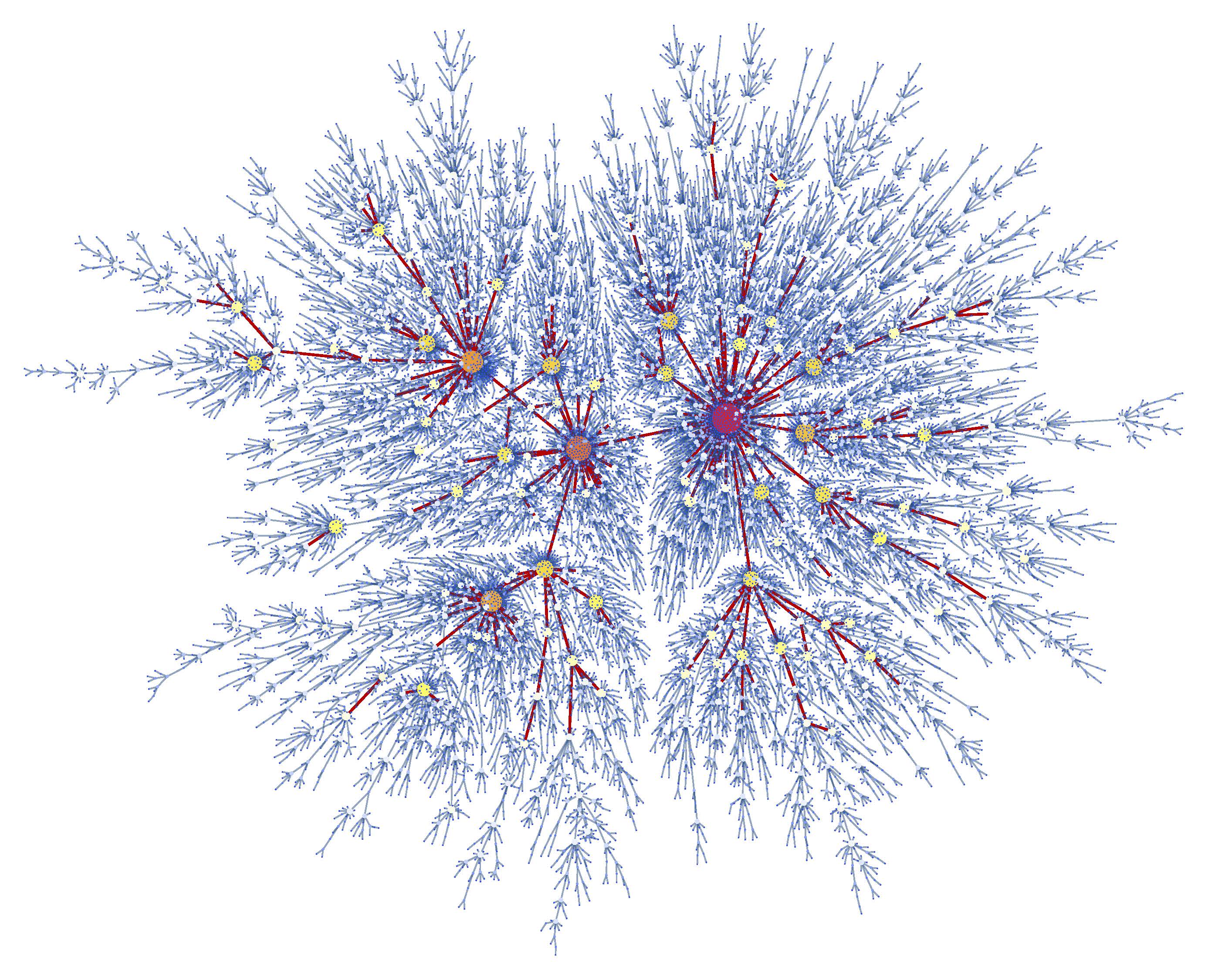 <p>A display of the evolution of an Erdos-Renyi random graph . </p>
<p>A display of the evolution of an Erdos-Renyi random graph . </p>Random graphs are ubiquitous in modern probability theory. Besides their intrinsic mathematical beauty, they are also used to model complex networks. In the early 2000’s, I. Benjamini and O. Schramm introduced a mathematical framework in which they endowed the set of locally finite rooted connected graphs with the structure of a Polish space, called the local topology. The goal of this summer school is to introduce the framework of local limits of random graphs, the concepts of Benjamini-Schramm (or unbiased) limits and unimodularity, as well as the most important applications. The lectures will be delivered by Nicolas Curien (Prof. Paris-Saclay University) and Justin Salez (Prof. Université Paris-Dauphine) and will be complemented by many problem sessions, where students will work in small groups under the guidance of teaching assistants, who are researchers in the field.
Updated on Jun 06, 2025 09:24 AM PDT -
Summer Graduate School Séminaire de Mathématiques Supérieures 2025: An Introduction to Recent Trends in Commutative Algebra (Toronto, Canada)
Organizers: Sergio Da Silva (Virginia State University), Federico Galetto (Cleveland State University), Elena Guardo (Università di Catania), Megumi Harada (McMaster University), Patricia Klein (Texas A & M University), Jenna Rajchgot (McMaster University), Adam Van Tuyl (McMaster University)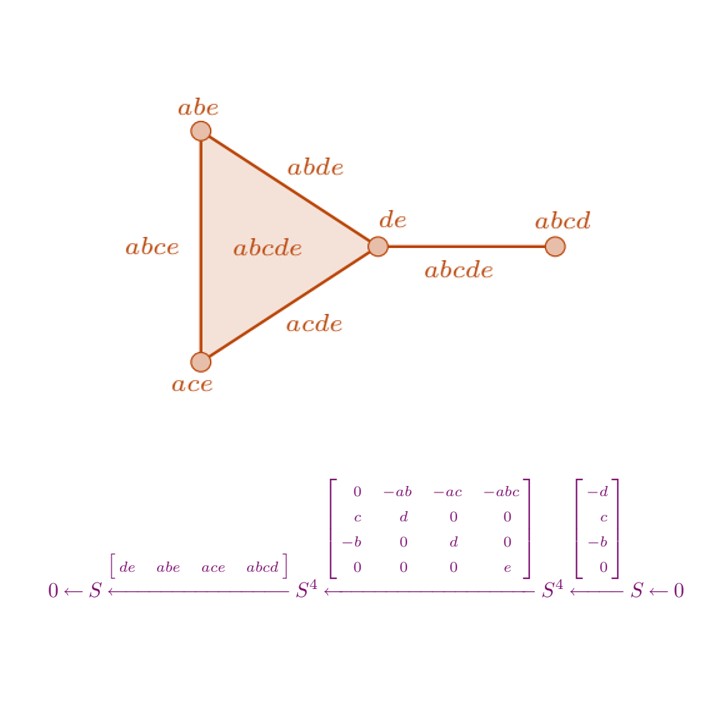 <p>A minimal free resolution supported on a simplicial complex</p>
<p>A minimal free resolution supported on a simplicial complex</p>The 2025 SMS will allow graduate students to learn about a number of recent trends and advances in the field of commutative algebra. The aim of the SMS is to provide an “on-ramp” for graduate students interested in algebra, combinatorics, and/or algebraic combinatorics to learn more about commutative algebra’s interaction with these fields. The introductory courses will introduce fundamental skills in commutative algebra, the more intermediate courses will expose students to cutting-edge research in the field. The school will focus on four topics within commutative algebra: Combinatorial Methods, Homological Methods, Computational Methods, and Characteristic p Methods. The SMS will provide both a series of introductory lectures and intermediate/advanced lectures from leaders in one of the four areas. The lectures will include a series of problem sessions that will allow participants to develop and hone their skills in these areas, which will be especially helpful for new people to the field. Participants will be encouraged to work collaboratively, both to enhance their own mathematical networks as well as to promote future collaborations beyond the school.
Updated on Feb 19, 2025 04:14 PM PST -
Workshop Detection, Estimation, and Reconstruction in Networks
Organizers: Po-Ling Loh (University of Cambridge), Gábor Lugosi (Pompeu Fabra University), Sofia Charlotta Olhede (École Polytechnique Fédérale de Lausanne (EPFL)), Roberto Oliveira (Institute of Pure and Applied Mathematics (IMPA)), LEAD Miklós Rácz (Northwestern University) Recovering communities in a network.
Recovering communities in a network.In a growing number of applications, one needs to analyze and interpret data coming from massive networks. The statistical problems arising from such applications led to important mathematical challenges: building novel probabilistic models, understanding the possibilities and limitations for statistical detection and inference, designing efficient algorithms, and understanding the inherent limitations of fast algorithms. The workshop will bring together leading researchers in combinatorial statistics, machine learning, and random graphs in the hope of cross-fertilization of ideas.
Updated on Jun 24, 2025 08:37 AM PDT -
Workshop Simons Institute for the Theory of Computing and SLMath Joint Workshop: AI for Mathematics and Theoretical Computer Science
Organizers: LEAD Jeremy Avigad (Carnegie Mellon University; Institute for Computer-Aided Reasoning in Mathematics (ICARM)), Maria Ines de Frutos Fernandez (Hausdorff Research Institute for Mathematics, University of Bonn), Marijn Heule (Carnegie Mellon University), Floris van Doorn (Universität Bonn), Adam Wagner (Worcester Polytechnic Institute)
This is an exciting time for mathematics, as new technologies for mathematical reasoning provide novel opportunities for mathematical research, communication, and discovery. Mathlib, a library of formal mathematics, now contains one-and-a-half million lines of code. Important results like the proof of polynomial Freiman-Ruzsa conjecture by Gowers, Green, Manners, and Tao and the exponential improvement to the upper bound on Ramsey's theorem by Campos, Griffiths, Morris, and Sahasrabudhe were formally verified in the Lean proof assistant even before they were accepted to journals. Open problems in combinatorics have been solved with the help of automated reasoning, and AI introduced by Deepmind was deemed to have performed at the level of a silver medalist at the most recent International Mathematical Olympiad.
This workshop will introduce mathematicians and theoretical computer scientists to the technologies that underlie these recent successes, namely, proof assistants, automated reasoning, and machine learning. Talks each morning will survey exciting results in the field, and in the afternoons, we will help participants experiment with the tools to get a sense of what they do. We will also encourage participants to think about how they can use the new technologies in their research.
Updated on Dec 12, 2024 08:49 AM PST -
Workshop Critical Issues in Mathematics Education 2025: K-12 Mathematics Literacy for 21st Century Citizenship
Organizers: David Barnes (National Council of Teachers of Mathematics (NCTM)), Marta Civil (University of Arizona), Josue Cordones (Bronx Collaborative High School), Bill Crombie (The Algebra Project), Courtney Ginsberg (Math for America), Mark Hoover (University of Michigan), Emille Lawrence (University of San Francisco), Maisha Moses (The Young People's Project), Benjamin Moynihan (The Algebra Project, Inc.), Karen Saxe (Macalester College), Robin Wilson (Loyola Marymount University), Aris Winger (Georgia Gwinnett College)Activist Bob Moses argued that mathematical literacy was the next civil rights front line. The 2025 CIME workshop will explore what mathematical literacy might mean and why it still matters for citizenship now and in the future. The workshop’s long-term impact relies on the participation of research mathematicians, mathematics educators, educational researchers, teachers of school mathematics, and policymakers working across different perspectives and roles to foster collaboration that will raise the floor for mathematical literacy for citizenship now and in the future.
Updated on Jan 28, 2026 11:37 AM PST -
Workshop Algebraic and Analytic Methods in Combinatorics
Organizers: Vida Dujmovic (Unversity of Ottawa), János Pach (Alfréd Rényi Institute of Mathematics), Andrew Suk (University of California, San Diego), LEAD Yufei Zhao (Massachusetts Institute of Technology) A degree 7 curve passing through 35 points in the plane
A degree 7 curve passing through 35 points in the planeMany exciting breakthroughs in combinatorics involve innovative applications of techniques from a wide range of areas such as harmonic analysis, polynomial and linear algebraic methods, spectral graph theory, and representation theory. This workshop will present recent developments in this area and facilitate discussions of research problems.
Updated on Mar 20, 2025 10:45 AM PDT -
Workshop LatMath 2025 at IPAM
This research conference will feature plenary talks by leading researchers, career panels, professional development opportunities, and scientific sessions in the following areas: (1) Algebra/Number Theory, (2) Combinatorics, (3) Harmonic Analysis, PDEs & Differential Geometry, (4) Numerical Analysis and Computational Mathematics, (5) Machine Learning, (6) Mathematical Biology, (7) Statistics, Data Analysis, and (8) Math Education.
The goal of the conference is to encourage attendees to pursue careers in the mathematical sciences, to showcase research being conducted at the forefront of their fields, and, finally, to build a community around shared academic interests. The conference will be held on the UCLA campus in Los Angeles, CA.
LatMath is funded by the National Science Foundation Division of Mathematical Sciences, with additional support from generous sponsors.
Updated on Feb 26, 2025 10:50 AM PST -
Workshop Hot Topics: Interactions between Harmonic Analysis, Homogeneous Dynamics, and Number Theory
Organizers: Dubi Kelmer (Boston College), LEAD Amir Mohammadi (University of California, Berkeley), Hong Wang (New York University, Courant Institute)
In recent years techniques from harmonic analysis viz. projection theorems have found striking applications in finitary analysis on homogenous spaces. Such quantitative results have many potential applications to analytic number theory. This workshop will bring together researchers in these areas to further explore these connections.
Updated on Mar 05, 2025 11:22 AM PST -
Workshop Introductory Workshop - Graph Theory: Extremal, Probabilistic and Structural
Organizers: LEAD Penny Haxell (University of Waterloo), Michael Krivelevich (Tel Aviv University), Alex Scott (University of Oxford)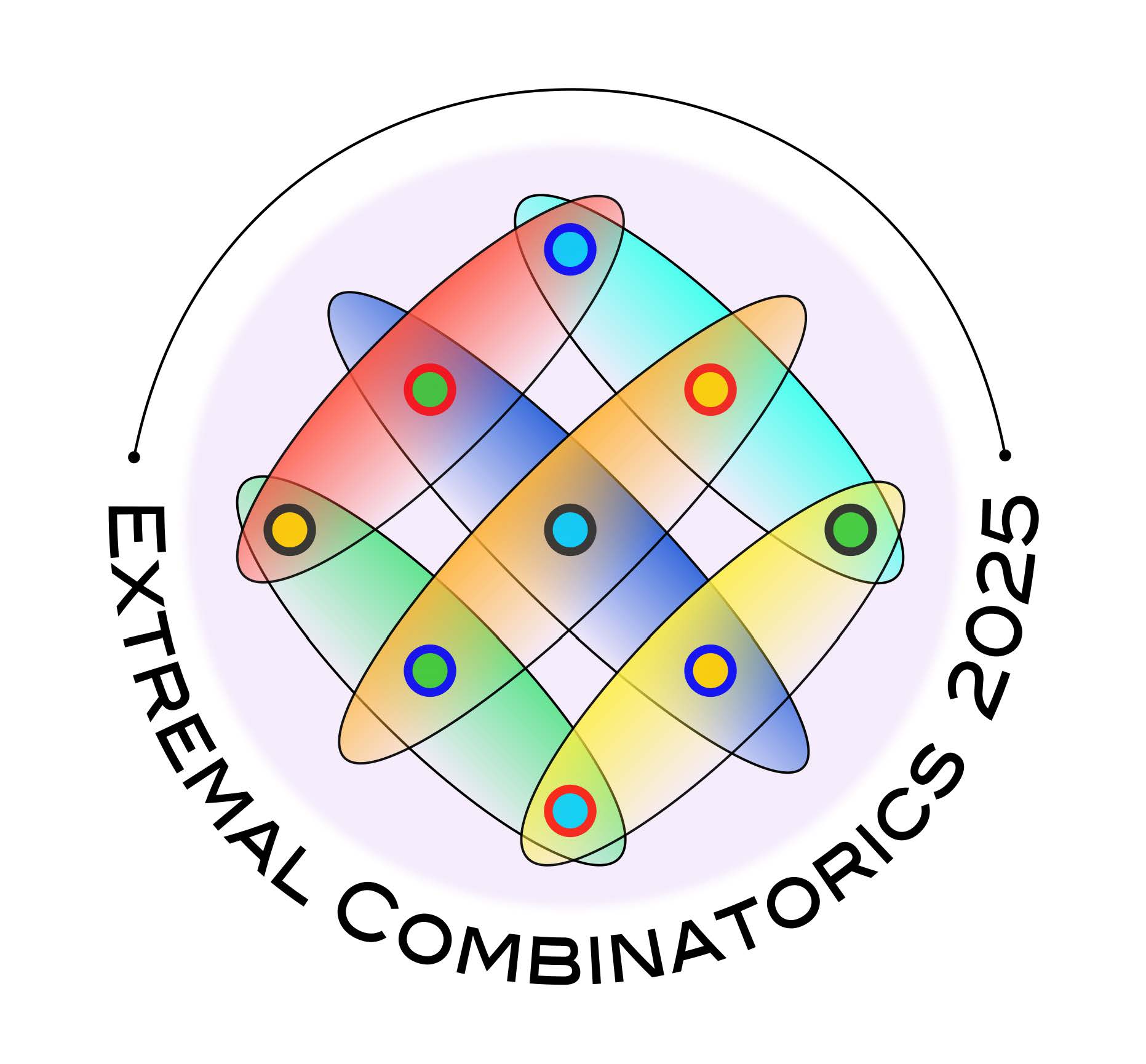
This workshop will feature leading experts in several major areas of graph theory, including extremal, probabilistic and structural aspects of the field. Introductory lectures will form an important part of the program, providing background and motivation, and aimed at a general mathematical audience. Complementing these, research talks will share exciting recent developments in graph theory.
Updated on Feb 13, 2025 10:36 AM PST -
Workshop Connections Workshop: Extremal Combinatorics
Organizers: Julia Böttcher (London School of Economics and Political Science), Anita Liebenau (UNSW Sydney), LEAD Maya Stein (Universidad de Chile)
This workshop will bring together promising early-career researchers in extremal combinatorics so that they can meet with, forge connections with, and be inspired by the leading figures in the area. The workshop will include lectures, time for collaborative research, and an informal panel discussion session on career issues. This workshop is open to all mathematicians.
Updated on Feb 07, 2025 10:36 AM PST -
Workshop Introductory Workshop: Probability and Statistics of Discrete Structures
Organizers: Louigi Addario-Berry (McGill University), LEAD Shankar Bhamidi (University of North Carolina), Christina Goldschmidt (University of Oxford), Dana Randall (Georgia Institute of Technology), Perla Sousi (University of Cambridge), Remco van der Hofstad (Technische Universiteit Eindhoven) Visualization of a network constructed using simple probabilistic rules, showing the emergence of hubs and other macroscopic network phenomenon. From https://graph-tool.skewed.de
Visualization of a network constructed using simple probabilistic rules, showing the emergence of hubs and other macroscopic network phenomenon. From https://graph-tool.skewed.deNetworks, graph driven algorithms, and dynamics on graphs such as epidemics, random walks and centrality measures all play a major role, both in our daily lives as well as many scientific and engineering disciplines. This introductory workshop will bring together experts and junior researchers in combinatorics, probability, and statistics to share a broad vision of major challenges and objectives, with a primary focus on models of random graphs and their limits, network inference, dynamic processes on networks and algorithms and optimization on random structures.
Updated on Jan 30, 2025 10:45 AM PST
